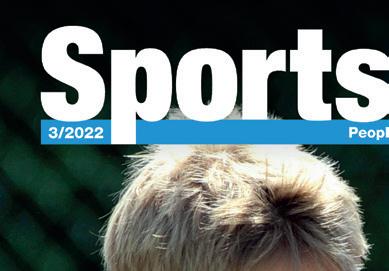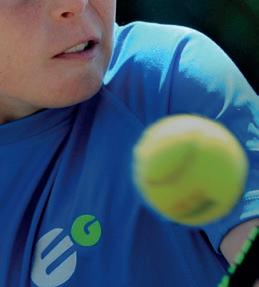
















































At a time of so many high profile sporting events

–Women’s Rugby Union World Cup, Rugby League World Cup, T20 Cricket World Cup, the forthcoming FIFA World Cup – there will be millions of people feeling more inspired and motivated to get active and try new sports & activities. Participation is one of the legacy aims of all events, alongside facility investment, and you only have to look at the growth in some women’s & girls’ sports to see how successful some sports are at engaging and benefiting from this interest..
So often the role models on the pitch, court and track will have their behaviour emulated by young people following their lead, or commented on by those following the sport. A shame then, that so many male footballers continue to behave in such boorish ways –berating referees, faking impact of tackles and contact – and consider this acceptable under the guise of “ends justifying the means”.
Sadly, this is not restricted to the elite level of the game. No other sport comes close for such open disrespect to officials – nor does any other sport have such an issue with crowd violence and intolerant behaviour. Indeed, the Women’s Euros earlier this year was a refreshing change for a major football tournament to be played (and attended) in such good spirit. Perhaps that is one of the better things that will come from Qatar hosting the World Cup. No reports of drunken or violent behaviour, while both fans and commentators focus their dismay and disgust at the gulf state’s intolerant laws and poor human rights. A refreshing sea change indeed, to the homophobic and racist chants often heard from pockets of ignorant spectators in many grounds.
Now if only the Qatari laws could clean up the behaviour of players as well, then that certainly would be something to celebrate!

Tom Walker Editor



T: +44 (0)7796 512769 E: tom@sportsnation.org.uk



John





T: +44 (0)1202 742968 E: john@sportsnation.org.uk
SportsNation is published by SportsNation Ltd in association with the Sports And Play Construction Association (SAPCA). www.sapca.org.uk
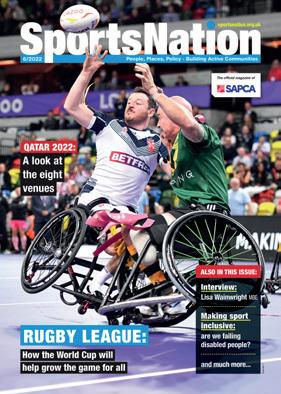


This publication is protected by copyright and no part may be reproduced, transmitted or stored in any print or electronic format without the written permission of the publisher. Every effort has been made to ensure the accuracy of the contents of this publication and SportsNation accepts no responsibility for any error or misrepresentation. Opinions expressed by the contributors and advertisers are not necessarily those of the publisher and we do not accept responsibility of losses or damages arising from them.
Printed by Big Wave Media Ltd.
ISSN 2755-0621 (Print) ISSN 2755-063X (Online)
The sport and recreation sector has done a remarkable job postCOVID-19, says chief of SRA




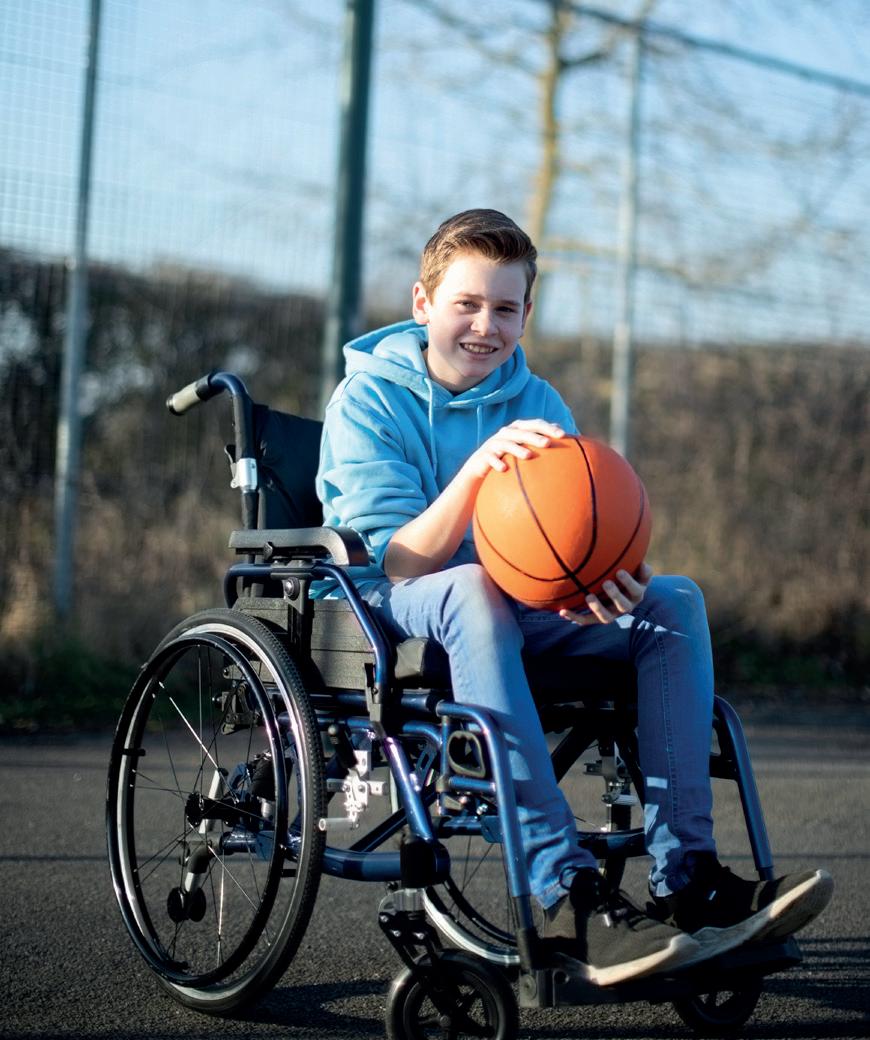
A new report shows how many disabled people feel forgotten following the pandemic
42 FIFA World Cup SportsNation looks at the eight venues hosting the biggest sports show on earth
We chart the highlights of the recent SAPCA Conference and Exhibition in Glasgow
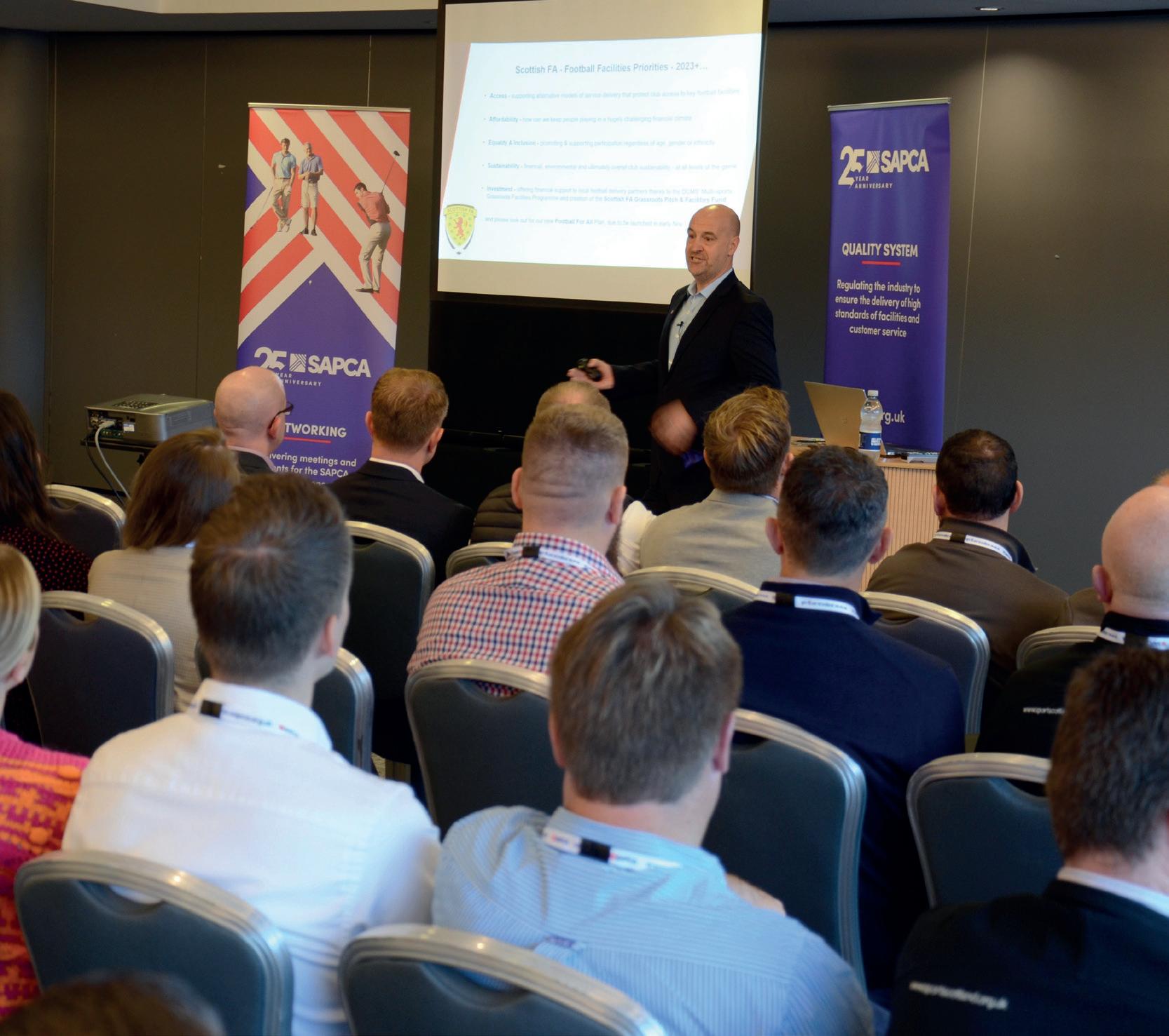
The long-awaited £57m Ravelin Sports Centre in Portsmouth finally opened in September
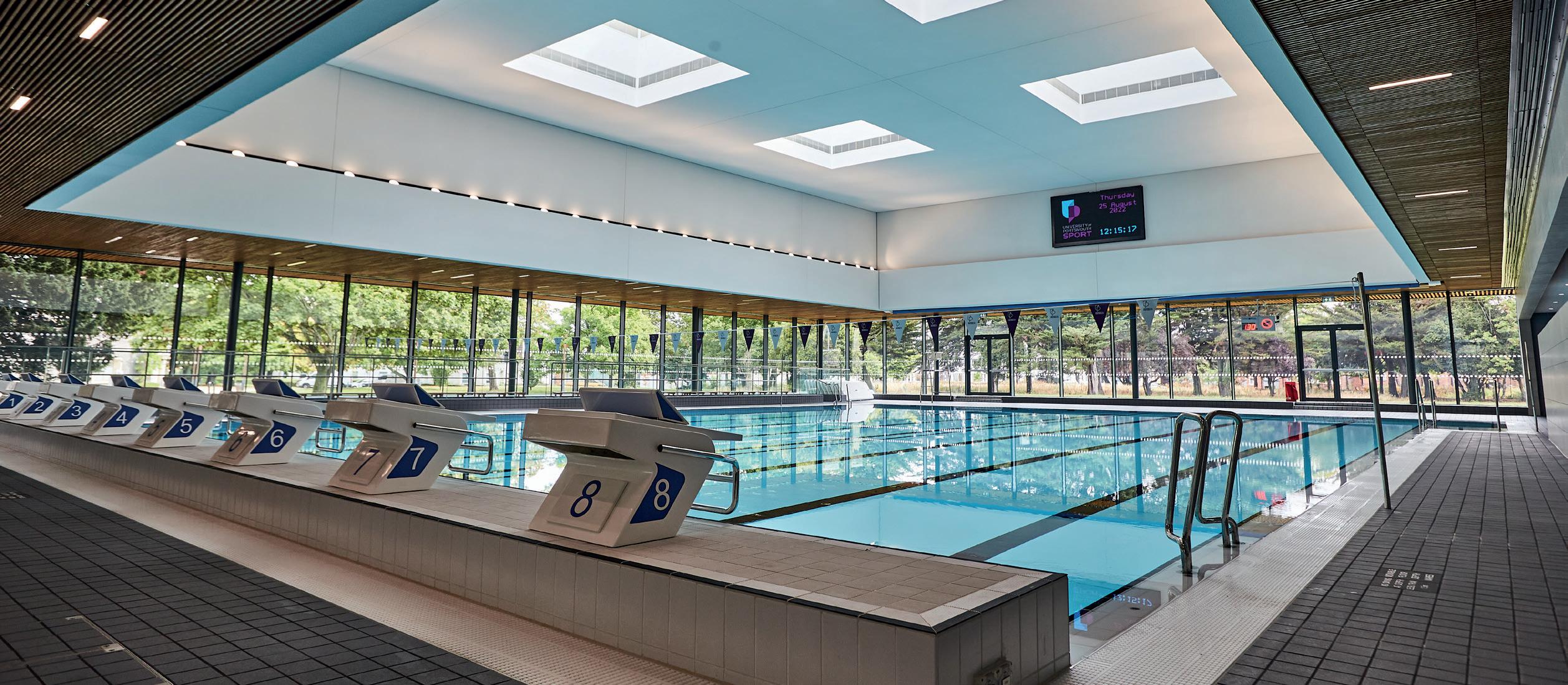
60
A handy classified directory of some of the leading SAPCA members

What does the role of technical administrator at SAPCA member Sports Labs entail?
































Grassroots sport organisations are struggling under the cost of living crisis, with 94% of community sports groups saying they “fear the impact” of the financial pressures they are facing. More than twothirds (67%) of the groups also expect the crisis will force children out of participating in activities over the next six months – even when those activities are free.

The findings come from research by charity Sported,

which surveyed more than 500 community sports groups.
Tottenham Hotspur and England footballer, Eric Dier, is one of the high-profile Sported ambassadors.
“I am very concerned at what the next few months will bring and the lasting impacts this crisis will leave for grassroots sports groups. The cost of living crisis has already impacted them and I’d urge people to do what they can to help keep the doors of these groups open.”
The Digital Marketing Hub will continue to operate for a second year, after Sport England awarded £520,000 worth of National Lottery Funding to the Chartered Institute for the Management of Sport and Physical Activity (CIMSPA). The Hub is aimed at improving the marketing skills of the sports sector.
Activity Alliance has appointed Adam Blaze as its new CEO. Blaze will start in the role on 1 January 2023, taking over from Barry Horne MBE, who is set to step down at the end of 2022 after more than twelve years at the helm. Blaze joins the disability sport charity from Sport England.
A guide has been published to increase awareness among health professionals of the benefits of cycling. Called The Therapeutic Value of Cycling – a resource for health professionals, the guide advises on how cycling can be adapted and embedded within interventions.
Jason Douglass, chair of the Sports and Play Construction Association (SAPCA), has announced his intention to step down from the role when his two-year tenure comes to an end in December 2022. Douglass was named chair for the two-year term in December 2020. During his tenure, he oversaw the appointment of Richard Shaw as CEO, following the retirement of Chris Trickey.

“It’s been my privilege and pleasure to welcome Richard Shaw as he’s joined the Association as CEO. Richard has impressed me with his ability to get under the skin of the association very quickly, identify opportunities for change and implement intelligent strategies for running the business. I’m confident that the direction of travel that’s been set is the right one, and SAPCA’s journey will continue positively and effectively.”

European Athletics has signed a partnership deal with SAPCA member Conica until the end of 2026. Track manufacturer Conica will become a Preferred Supplier of European Athletics (EA) in the ‘tracks and sport flooring’ category and will be designated as an Official Supplier at events where their tracks are used.

Conica Chief Commercial Officer, Lara Guillod, said: “The cooperation with European Athletics is fully aligned with our corporate strategy, especially as we have started to focus even more strongly on international expansion in the sports and leisure sectors this year.”
European Athletics currently has 51 national members across the continent.
Stuart Andrew has been appointed as the new sports minister. He replaces Nigel Huddleston, who had held the role since early 2020.
During his parliamentary career, Andrew, the MP for Pudsey since 2010, has served in a number of junior posts across various government departments –from justice to housing. He was previously Minister of State at the Ministry of Justice between 8 July 2022 and 7 September 2022. Before that, he was Minister of State (Minister for Housing) in the Department for Levelling Up, Housing and Communities.
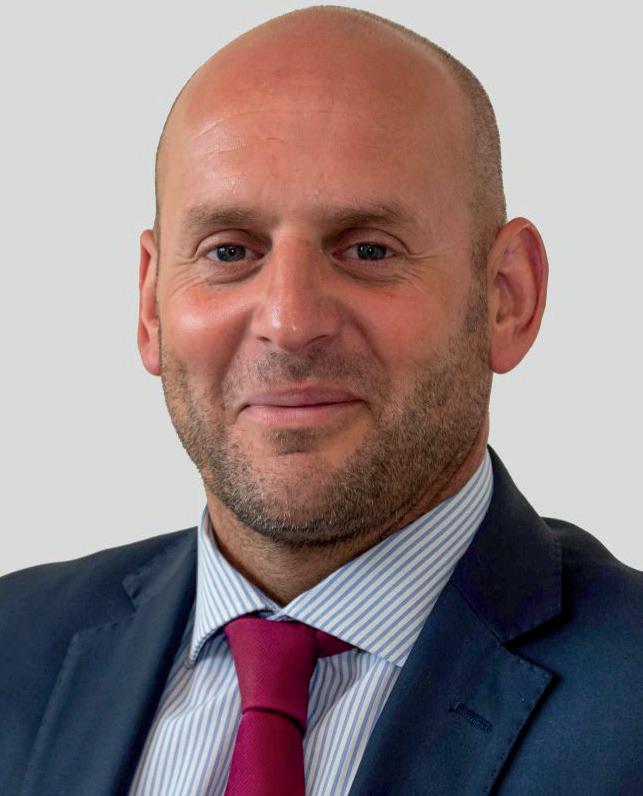
While he has no previous experience in sport, his

appointment has been welcomed by a numer of organisations in the sports industry.

This year’s Rugby League World Cup held in England has become the most watched tournament in the sport’s history.
Broadcast figures at the time of SportsNation going to press show that the event had attracted a cumulative match average of more than 18.7 million.
Records have also been broken at the venues hosting the games.
The DW Stadium in Wigan broke the all-time record for
a Rugby League World Cup quarter-final match, as 23,179 people were in attendance to see England men beat Papua New Guinea 46-6 and advance to the semi-finals.

England women’s game against Canada also broke the attendance record for a women’s rugby league game with 8,621 people in the stands.
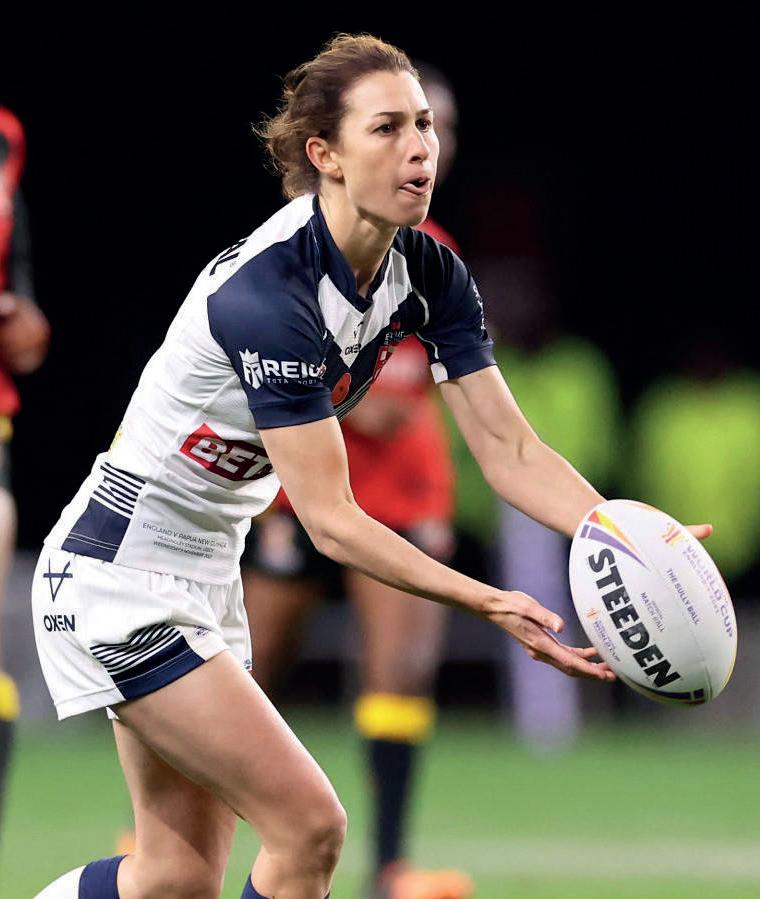
Meanwhile, the tournament has had a huge impact in promoting
the sport of wheelchair rugby to larger audiences.
At London’s Copper Box Arena, the world record for attendance was broken twice within a week.
The record is now 3,268 people, who watched England’s Wheelchair team defeat Spain, increasing the record which was set just a few days earlier in the opening double header on Thursday 3 November.
The Welland Park Academy is turning its existing sports hall into classrooms to accommodate more pupils. Replacing it, a new structure will give the school the opportunity to offer a broader programme of sport, as well as provide additional space for exams and social events.
Working alongside consultancy firm S2E, the job is expected to take six months and is hoped to be the first of many projects for the partnership. As principal contractors, CopriSystems designed the building, carried out the structural calculations and will do a full internal fit-out including all electrics, plumbing and changing room facilities.

A site manager has been recruited to lead the team and he is doing a fantastic

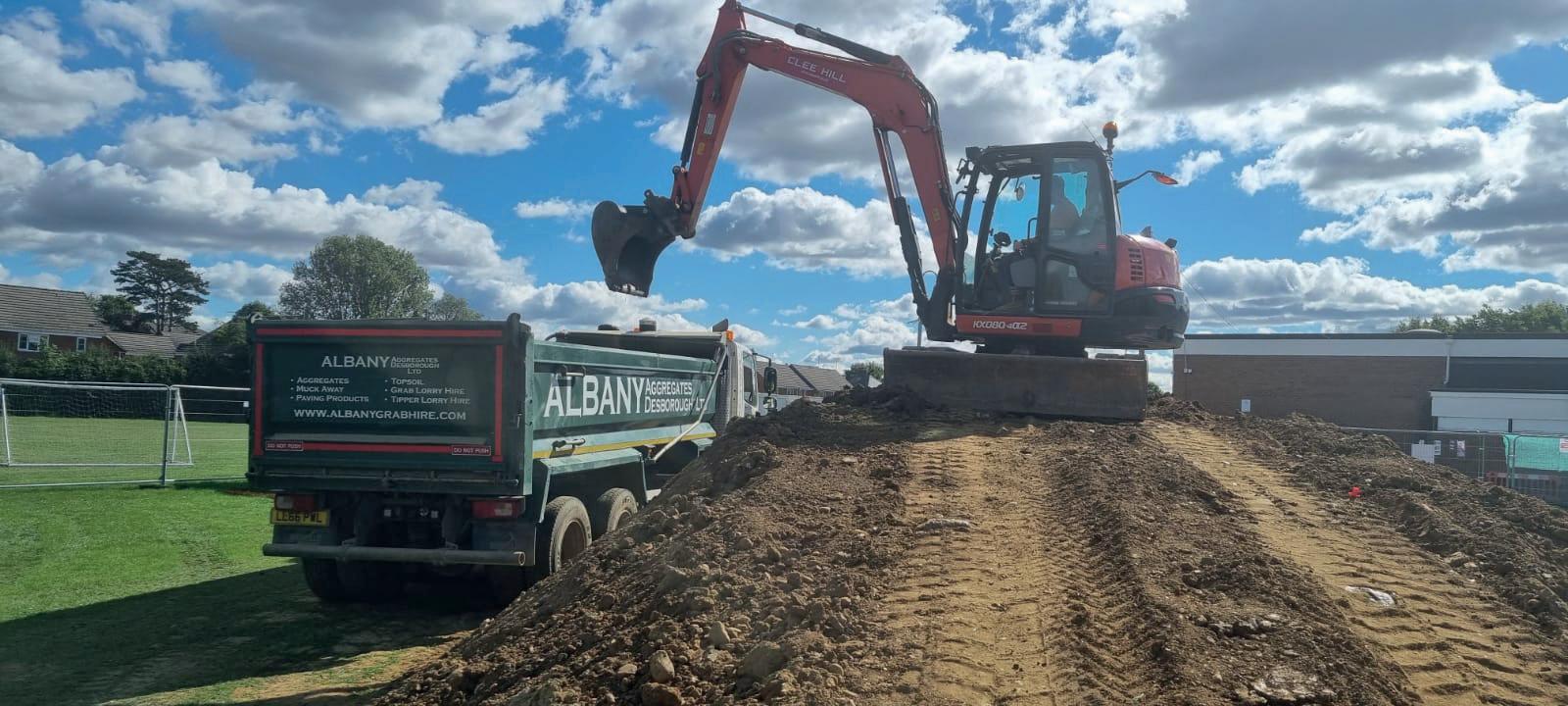

job having already had to deal with a number of unforeseen complications, including foul mains water, issues with the electrical supply, torrential rain flooding the clay soil and a workforce that have been regularly soaked to the bone. However, spirits have not been dampened and they remain on time and within budget.
“We have been delighted with the progress on our new sports hall,” says Julie McBrearty, the school’s principal. “CopriSystems have worked with precision and speed to realise the plans to deadline. There is a buzz on site as students enjoy watching the structure take shape. This facility will enhance our provision of excellent sporting experiences.”
This is a project of many firsts for CopriSystems, despite having over 30


The structure will create more opportunities for sport at the school years experience supplying bespoke sports structures to schools, gyms, leisure centres and other training venues. The company is continuously looking for new ways to advance its processes by being more sustainable and for the first time, has started to use plastic sheets on the inside of the wood shuttering to prevent the concrete from sticking. This allows the wood to be reused again and is just one example of their commitment to reduce their environmental impact by being innovative. It’s an exciting time for CopriSystems and, with a renewed focus on making sport more inclusive and sports facilities more accessible, we expect to see many similar projects cropping up in their portfolio. ● More info: www.coprisystems.com

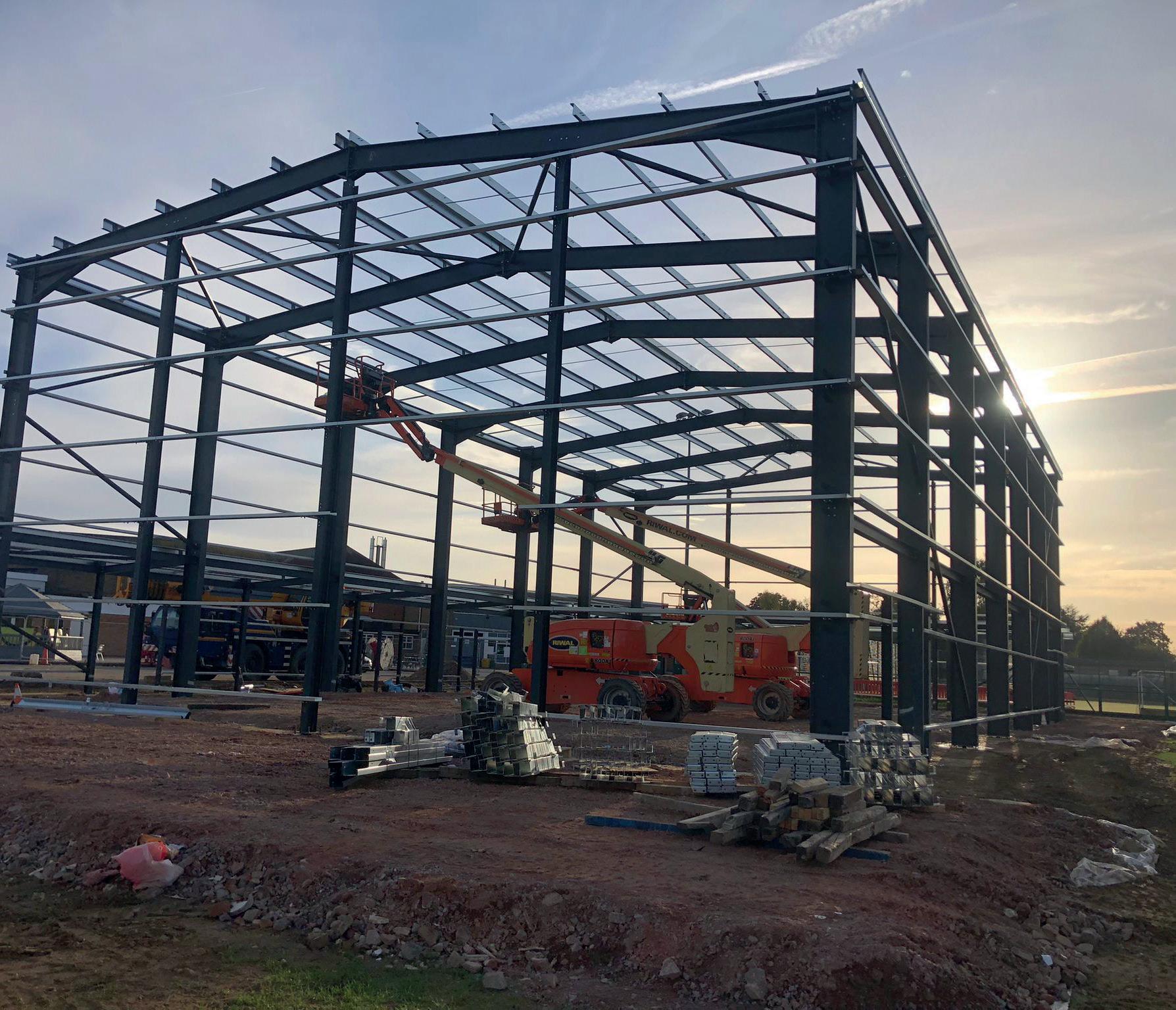
We have been delighted with the progress on our new sports hall. CopriSystems have worked with precision and speed to realise the plans to deadline. There is a buzz on site as students enjoy watching the structure take shape. This facility will enhance our provision of excellent sporting experiences.
Julie McBrearty Principal, Welland Park Academy
Ukrainian refugees are securing new careers as lifeguards in the UK, thanks to the RLSS UK’s National Pool Lifeguard Qualification (NPLQ).

Three Ukrainians are now working as lifeguards at Brighton Swimming Centre after completing the RLSS UK’s NPLQ. A fourth learner, aged 16, has gone on to full time education at Brighton College.
The lifeguards - aged 19, 34 and 47-years-old - had been enrolled on a Functional Skills UK course to improve their English reading, writing and communication skills when offered the opportunity to complete the NPLQ course with Swim UK.
The students studied alongside their British counterparts during the five-day course using Google
Translate to interpret any specialist terminologies. During the final exam, they had access to an app, which allowed them to translate the questions into Ukrainian.
Sacha Lansdall, Curriculum Advisor and Tutor at Functional
Skills UK/Swim UK, said: “The NPLQ course gave the learners focus and has really helped them grow in confidence. They’ve gone from not knowing much English and being out of work to being employed as a lifeguard in the UK.”

Gerflor will partner Netball Scotland for three years
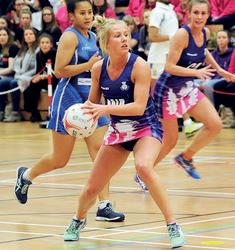
The
The appointment is part of Netball Scotland’s vision to become the “sport of choice” for all women and girls in Scotland.
Geraldine McGuire, Netball Scotland’s Head of Development said: “We very much look forward to working with Gerflor, as we continue to build an infrastructure of places across Scotland to support the growth and ambition of our sport.”
Netball Scotland is responsible for the governance and development of the sport across the country.




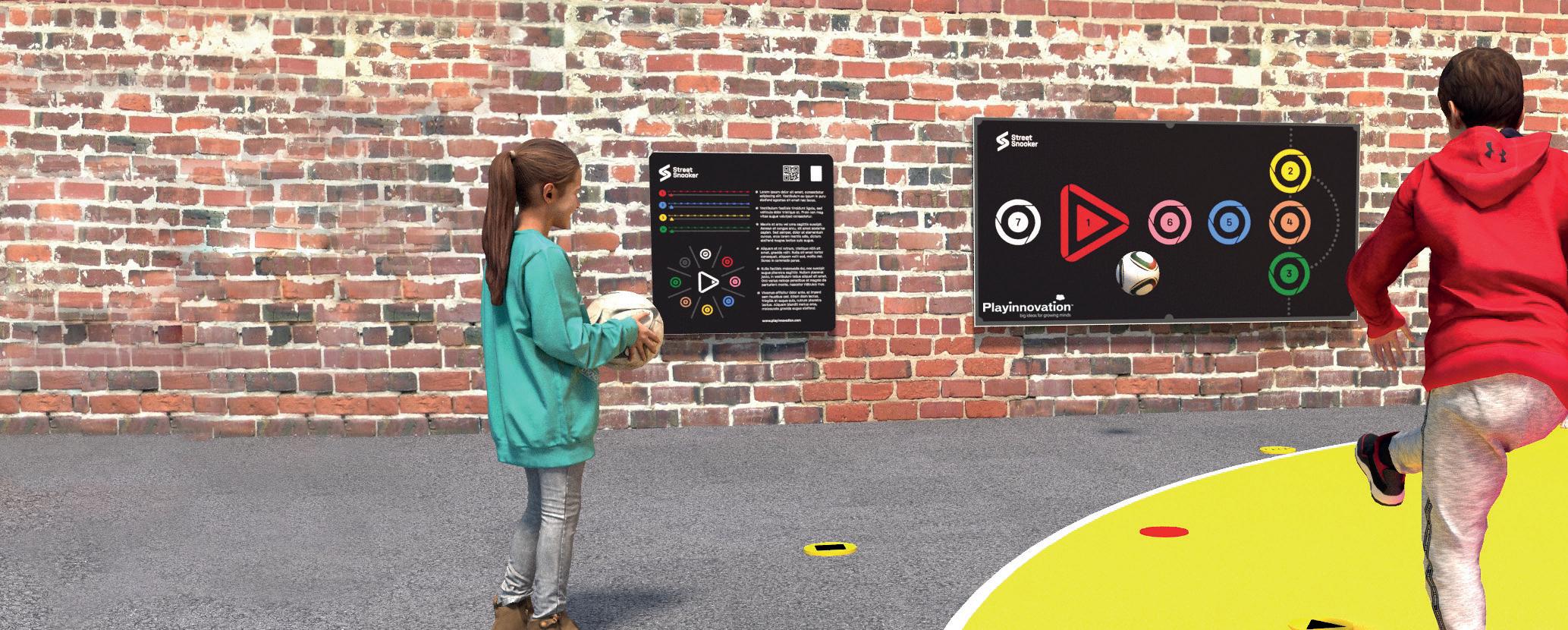








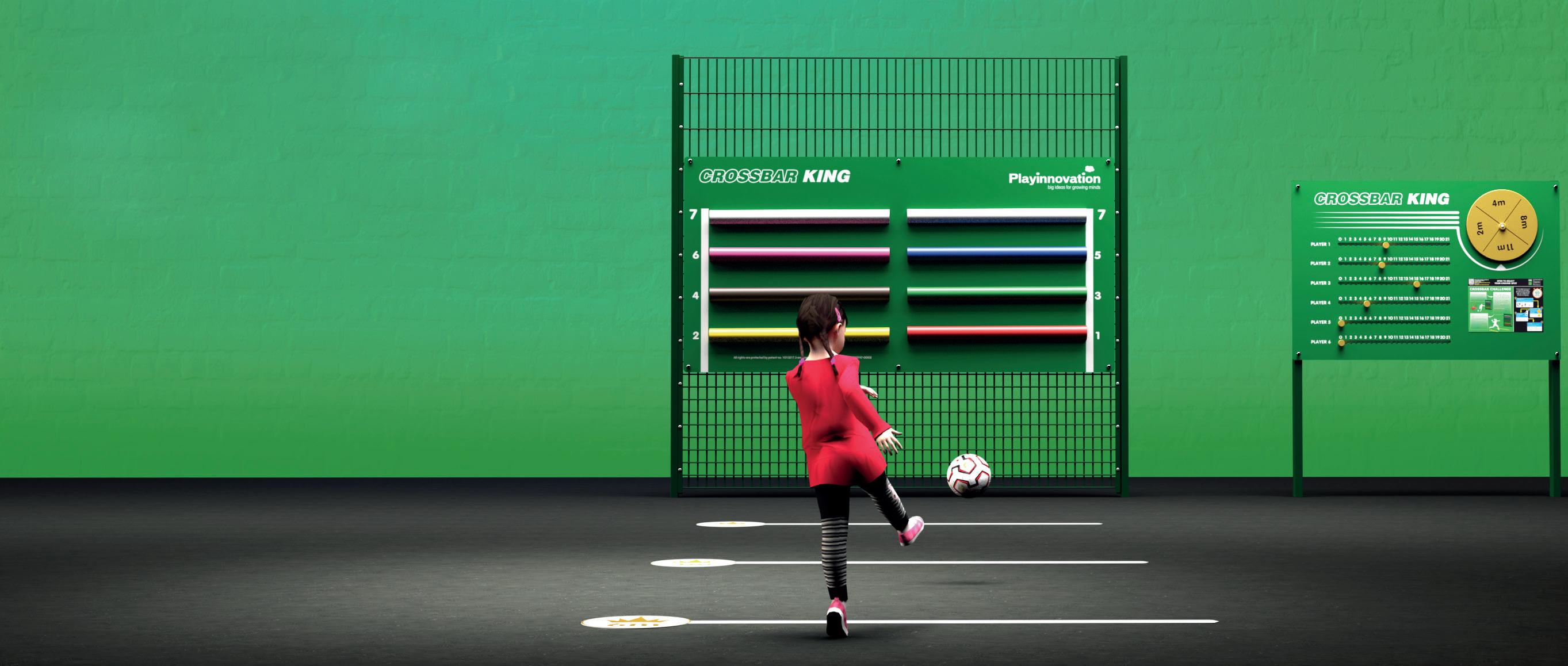





























































Women in Sport has partnered with 20 organisations to help break down the barriers faced by women and girls who want to get physically active. As part of its Time Together campaign, Women in Sport has teamed up with the likes of England Netball, RFU, British Cycling and Swim England to offer accessible
ways to try out new activities in supportive environments.
The campaign, which is centred around the theme of belonging, is also being supported by ITV This Morning doctor Zoe Williams.

The initiative follows research by Women in Sport, which found that 1.3 million girls in the UK, who previously enjoyed sport in primary school, are dropping out of sport during their teenage years. The report shows that the issues preventing girls from being active include a fear of judgement, combined with the challenges of navigating puberty.

The project aims to break down barriers to being active
Stephanie Hilborne, Women in Sport CEO, said: “We know that most teenage girls face real barriers to getting active and into sport. The cumulative impact of stereotyping from a young age means many girls feel they don’t belong being active.”


SAPCA member Dynamik has completed the redevelopment of London’s Lee Valley Indoor Athletics Centre. Working in partnership with track manufacturer Mondo, the facility has been transformed in order to maintain the centre’s World Athletics Certification.

The venue is operated by GLL on behalf of Lee Valley Regional Park Authority, who wanted the redevelopment work to be undertaken in an environmentally-friendly way.
“We took on board the environmental requirements and came up with the best solution, overlaying the old track surface with a new Mondo surface to avoid landfill,” Dynamik said. “This also saved time, energy and lowered the cost.”
The centre now boasts a brand new Mondo surface
SAPCA member Harrod Sport has supplied its FIFA-Approved, Stadium PRO Goal Post Systems to all the stadiums hosting the matches at the this year’s FIFA World Cup in Qatar.

As well as delivering its Stadium Goals to all eight stadiums, it has also delivered more than 400 goals to the 32 training venues across Qatar.
Overall, Harrod Sport equipment will be used by the world’s best players at 68 training pitches.
The company’s Director of Sport Sales & Marketing, Kevin Utton, said: “Harrod Sport has supplied many major events and we’re elated to be able to add the prestigious FIFA World Cup to this list.
Alan Ferguson, FIFA’s Senior Pitch Management Manager at the governing body’s World Cups Division, added: “Working with Harrod Sport for the supply of football goals for the 2022 FIFA World Cup provides me and the entire grounds team with a tremendous amount of confidence as we move into tournament mode.

“Knowing that we have FIFA Approved products in place, which have been tried and tested at the very highest level, is exactly what we need for the greatest show on earth.”
Harrod Sport has previously supplied goals for the Japan 2019 Rugby World Cup, UEFA EURO 2020 (played in 2021), the Tokyo 2020 Olympic Games and, more recently, UEFA Women’s EUROs England 2022.
SAPCA member Amorim Sports has made its Dutch debut after supplying Schagen United in The Netherlands with its cork-based natural infill for a 3G artificial football pitch.

Amorim’s Organic 202 infill combines cork and olive components in a special processed way, providing an alternative to the polymeric rubber crumb infill.
“The Schagen United pitch was a pilot project and the players’ feedback was very positive,” a spokesperson for Amorim Sports said.
“The club was really satisfied with the performance aspect.
“While the olive core component ensures the necessary stability in
the system, the cork component contributes to the reduction of force and increases playing comfort thanks to its natural elasticity. The size distribution, as well as the infill shape, is optimised to minimise
the discharge from the system and the maintenance effort.
“In contrast to other natural infill materials, it is weatherresistant, rot-resistant and ensures constant playing performance.”

The latest round of a project exploring the wellbeing of those working in the fitness and active leisure sector has been launched.
The Workforce State of Mind Survey is now entering into its third year. Last year, The Survey, which is anonymous, reported that 57 per cent of people working in fitness and active leisure have experienced a mental health issue in the last 12 months, up from 53 per cent the year before.

Only 11 per cent say that anybody at work checks in on their mental health, down from 19 per cent in 2021.
This year, the survey will benefit from the official support of Active IQ, Alliance Leisure, Les Mills and Myzone. The survey is owned and managed by Workplace
Mental Wealth and backed by The Chartered Institute for The Management of Sport and Physical Activity (CIMSPA).
Lindsey Simpson, Co-founder of Workplace Mental Wealth, said: “As we enter the third year of The

The survey will explore the wellbeing of those working in physical activity
Survey, it will be interesting to see how individuals in the sector are faring and what employers are doing to support their teams.”
The survey will go live on the Workplace Mental Wealth website in January 2023.
The Football Foundation has appointed Playfinder to supply smart access and integrated booking systems for the pilot phase of its PlayZones programme.
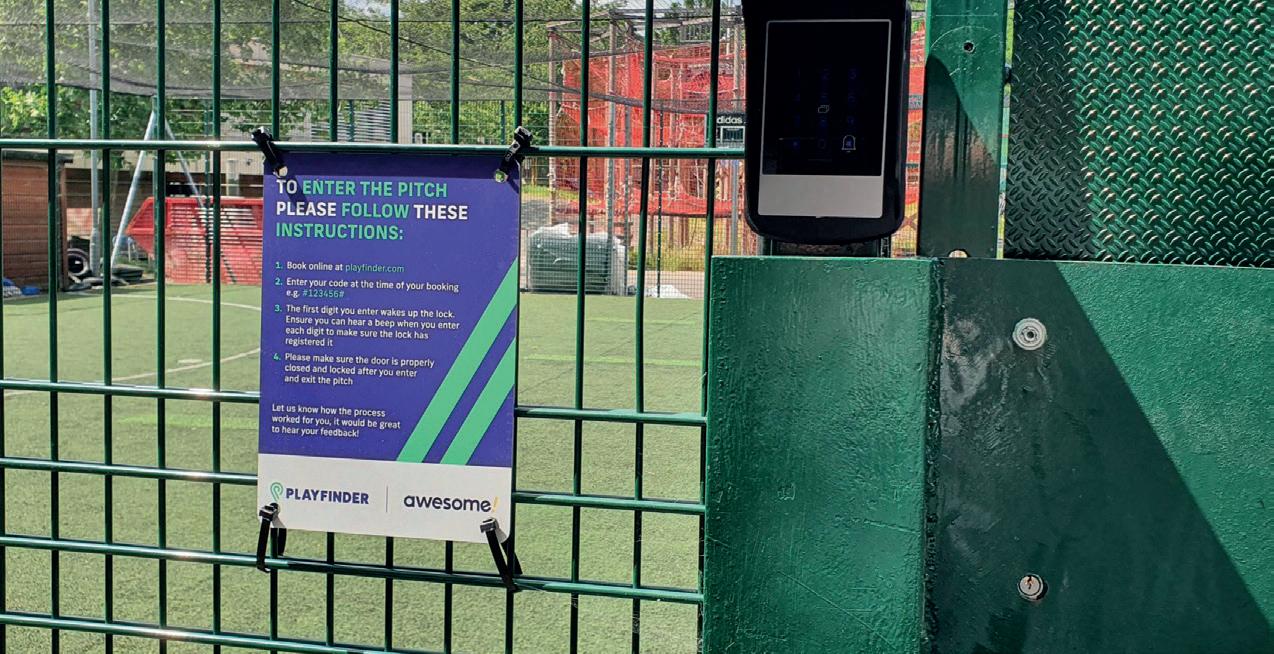
PlayZones are small-sided sports facilities designed to provide accessible outdoor facilities that bring communities together through recreational forms of football and a range of other sports (for more, see SportsNation Issue 5/2022).
Playfinder will provide its Lockteq access solution to PlayZones and, alongside its
Playfinder will provide PlayZones with Bookteq and Lockteq solutions
Bookteq booking system, will offer a reservation system which enables players to have access to facilities using a unique access code.
The Football Foundation plans to create 330 PlayZones sites as part of a £92m investment by the end of 2025.













Active ageing presents “the biggest opportunity for the physical activity sector today”, according to David Stalker, president of EuropeActive – the industry body for the European sports, fitness and physical activity sector.
Stalker, addressing more than 100 industry professionals on an online seminar, said it was time for facility operators and activity providers to focus on older adults.
“As operators, if you can’t see that one of the biggest opportunities you have is the ageing population, then frankly I don’t know what you’re doing in the industry,” Stalker said.

“For the first time health is sitting at our door with the opportunity to deliver it and ageing is a crucial element of that, so let’s grab it.
“As a sector, we have to embrace this challenge. It’s hard work, but it’s crucial that we make a difference to people’s lives. We must do it.”
Official statistics show that, in the UK, there are 12 million people aged 65 and above. By 2035, more
than half of adults are expected to be 50 or over and the number of people aged 85 and over is projected to double by 2050.
Stalker was speaking in a webinar with the topic of “Active and Healthy Ageing”.

The England and Wales Cricket Board (ECB) has named Richard Gould as its new chief executive. Gould, the current CEO of Bristol City FC, will take up the post at the end of January 2023.
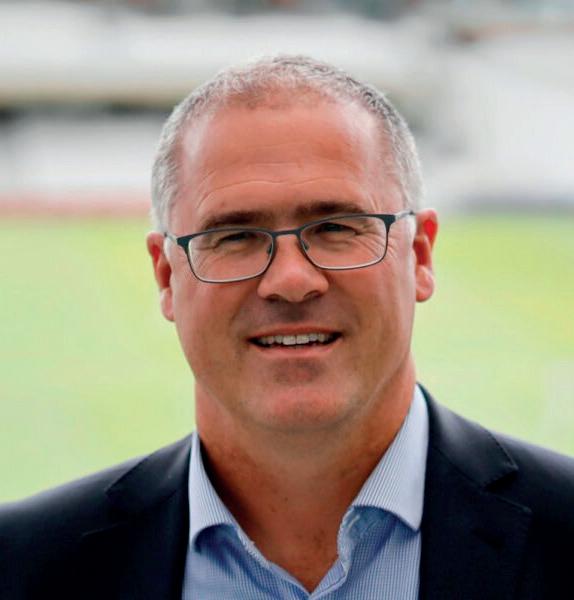
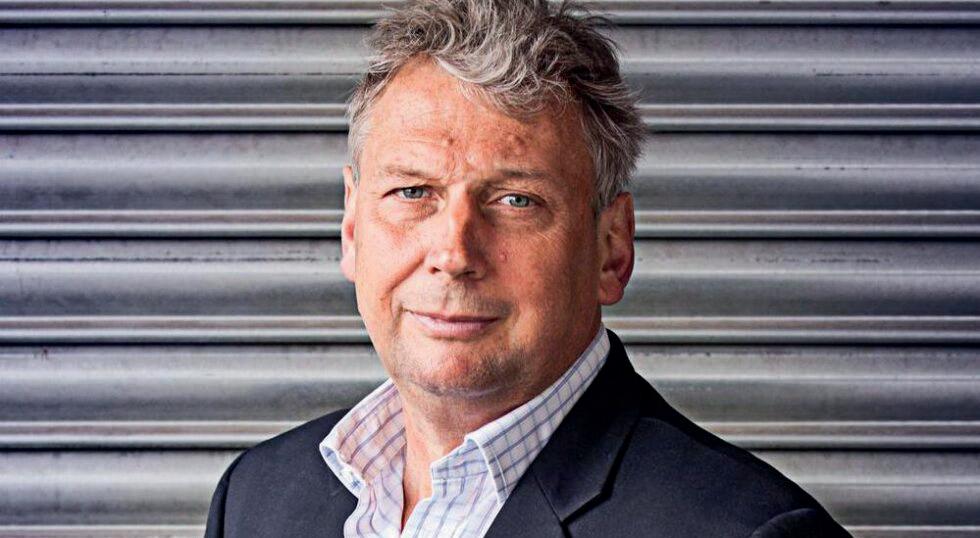
During his career, Gould has held a number of leadership roles in cricket – including stints as CEO at both Somerset CCC and Surrey CCC.
At ECB, Gould, 52, will be tasked with delivering the vision set out by ECB chair Richard Thompson to make cricket “the most inclusive sport in the country”. The strategy follows accusations of “widespread racism” in English cricket made in 2021 – ignited by complaints made by former Yorkshire CCC player, Azeem Rafiq.
Gould said: “Cricket is a national asset that can be played by all and helps strengthen and enhance communities across the nation.”








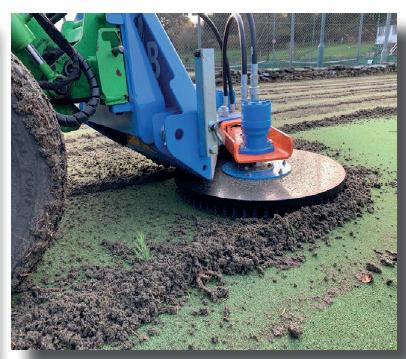






Equipment specialist Escape Fitness has launched its new Multi Activity Resource Station (MARS-2.0), as part of plans to break down barriers to participation that exist when people feel unsure of how to safely and effectively use gym equipment.

Designed to “bridge the gap between education and equipment”, MARS 2.0 aims to create a more inclusive training environment.
Matthew Januszek, CEO, Escape Fitness, said: “MARS 2.0 provides ‘always on’ equipment instruction and coaching, perfect for training spaces that do not always offer in-person support from instructors. “Many people, especially
those who are new to functional training, can be put off training because they are unsure of how to engage with the equipment.
“Being able to access equipment demonstrations and pre-loaded programmes that focus on how to use the equipment gives the operator peace of mind that people can train safely and the user the confidence to participate.”
Clicking on the MARS 2.0 touchscreen unlocks a large selection of fitness content from individual exercise and equipment
demonstrations to full-on workouts. The entire Escape Fitness content library is available to all, with the option to switch-on and switchoff content streams to reflect the gym’s equipment provision.
Sport needs to adapt and to make activities more appealing, suitable and welcoming for children and young people.
That is the finding of a major survey by Sport Wales, which captured the views of more than 116,000 pupils aged between 7 and 16. The 2022 School Sport Survey found that more than a third of pupils aren’t doing any frequent organised activity outside of their PE lessons.
The figure has risen from 28% to 36% since the survey was last undertaken in 2018. However, the report clearly shows that there is huge demand for sport. While only 39% of pupils are active three or more times a week outside of the school curriculum, 93% of pupils overall want to do more sport.
The survey questioned more than 116,000 pupils

Sport “must adapt” to attract young peopleThe solution aims to bridge the gap between education and equipment
King’s House School Sports Ground is a unique 35-acre site, not only used by pupils at King’s House School –an independent preparatory school in Richmond – but by up to 10 different local state and independent schools, to deliver sports curriculum for students across London.
When clearing some wasteland areas near redundant grass tennis courts and an old bowling green, the school realised they had a surprisingly large area of under-utilised land that could be developed. The school knew they wanted to use this space to build facilities not currently offered on site, to increase the number of available sports and capacity for schools.
The school approached the project from two perspectives: enhancing the facilities available to their own students, while increasing capacity and the variety of sports on offer from a commercial perspective for schools and local clubs who also use the site.
Looking for a proven design and build partner, the school chose to work with S&C Slatter to build their new facilities. S&C Slatter were chosen to construct a full-sized hockey pitch (a sport that hadn’t previously been played on site) as well as a new non-turf cricket facility and extension to their existing car park, to accommodate the increased capacity on site.
S&C Slatter supply their clients with an informed and experienced design input and in-depth commercial knowledge, and advised King’s House School on the implementation of a Gen2 facility. Their 30+ years of industry experience, knowledge and advice has contributed to the healthy multi-sport revenue stream.

The versatility of Gen2 allows the school to use the
Natalie Wray, Commercial Operations Manager King’s House School Sports Groundpitch for netball, tennis, mini-cricket, lacrosse and low-level football training, enhancing the revenue potential for both the pitch and site as a whole.





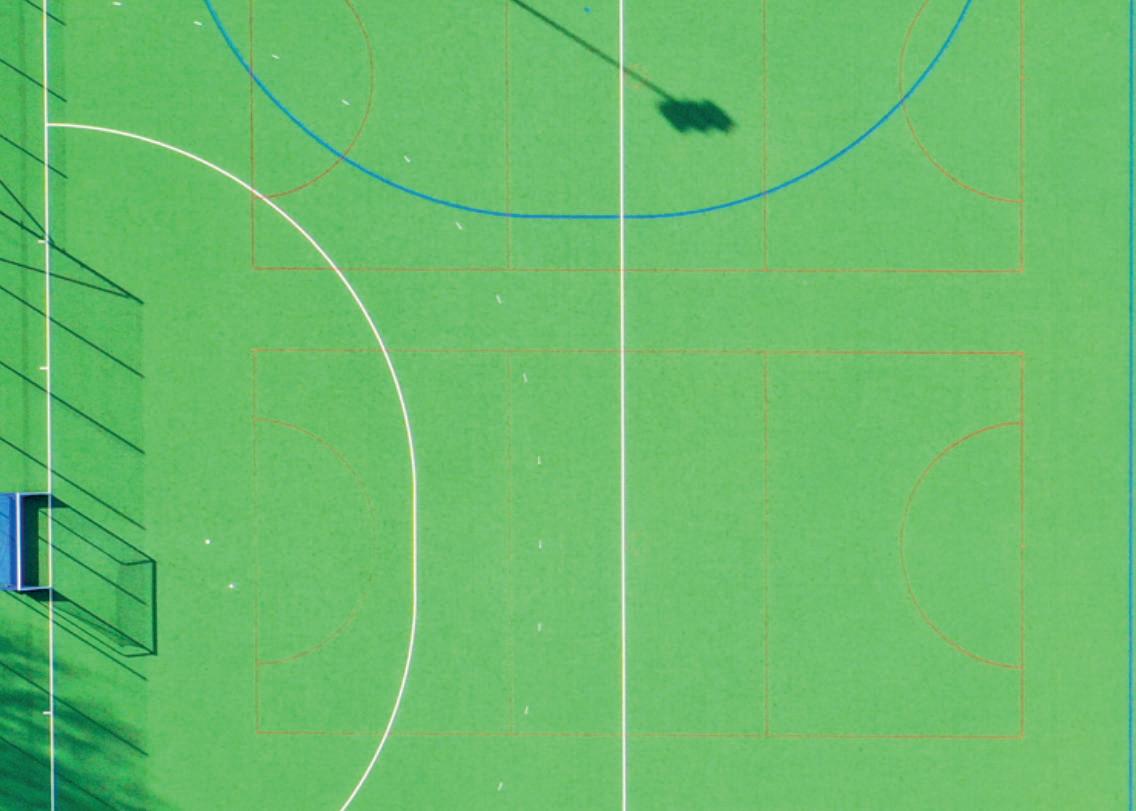
The completed facility has allowed the school to offer new sports on-site while increasing capacity, enabling King’s House School Sports Ground to take on more community hire, with external schools able to deliver their entire sporting curriculum on site. The hockey pitch is now home to the London Wayfarers Hockey Club, plus many more grass-roots sports clubs calling King’s House their ‘home’.
King’s House School Sports Ground had a unique concept, achieved by Natalie Wray in partnership with S&C Slatter, and is now an invaluable asset to a large number of pupils and sports players across London. This unique vision has brought together a whole community, supplying them with state-of-theart sports facilities and the space to learn and play.
“I
because they’re renowned in the industry and very well reviewed in the ISBA and bursars circuit”
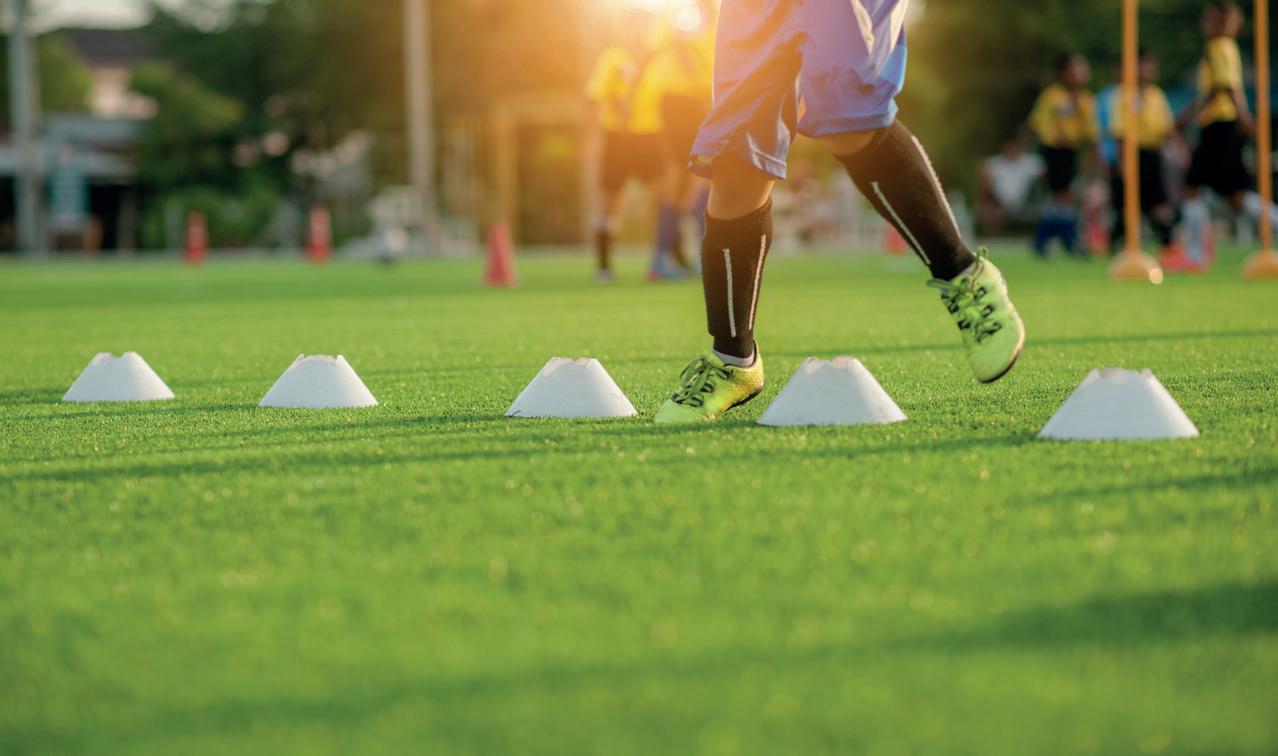
The GMA has embarked on an ambitious programme of expansion and growth as it gears up to deliver its new Five-Year Strategy.

The initiative will see the association focusing on six clear priority areas to achieve three specific long-term goals. One-year delivery plans will set out shortand medium-term objectives to ensure that progress and plans are kept on track.
The GMA’s strategic plans, which were developed in 2019, were put on hold following the COVID-19 pandemic and the association diverted resources to adapt to the changing working environment by facilitating remote working and replacing long-standing face-toface events and training with online solutions.
With the brand transition from IOG to GMA now complete, the association has reviewed and reset the strategy and, since April 2022, has been building the internal capability required to deliver this on behalf of its members and the wider industry.

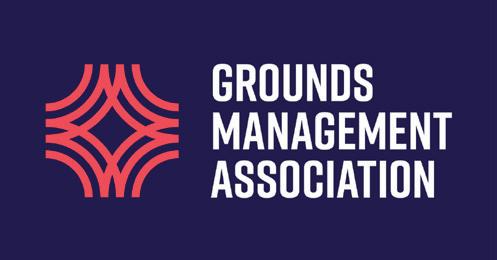
As well as two new directors heading communications, and commercial and events functions, the GMA has recently expanded its Pitch Advisory Service and welcomed four new employees into the membership, communications, and commercial and events teams.
The GMA recently expanded its Pitch Advisory Service
GMA CEO Geoff Webb said: “With the continued support of our chair and board, we are investing to ensure we have the capability and infrastructure required to meet the increasingly complex needs of members and the grounds care sector.
“This year has been about investment for the future – in terms of people and our technological infrastructure. Next year will see us move from capability building to implementation as we start to promote the sector’s contribution to society and to the economy. We will build reputation, as well as support sustainable business growth and protect the interests of those working in the sector. This will help us to attract new talent and accelerate the growth of a diverse workforce.” ●
“THIS YEAR HAS BEEN ABOUT INVESTMENT FOR THE FUTURE –IN TERMS OF PEOPLE AND OUR TECHNOLOGICAL INFRASTRUCTURE”
GMA CEO, Geoff Webb






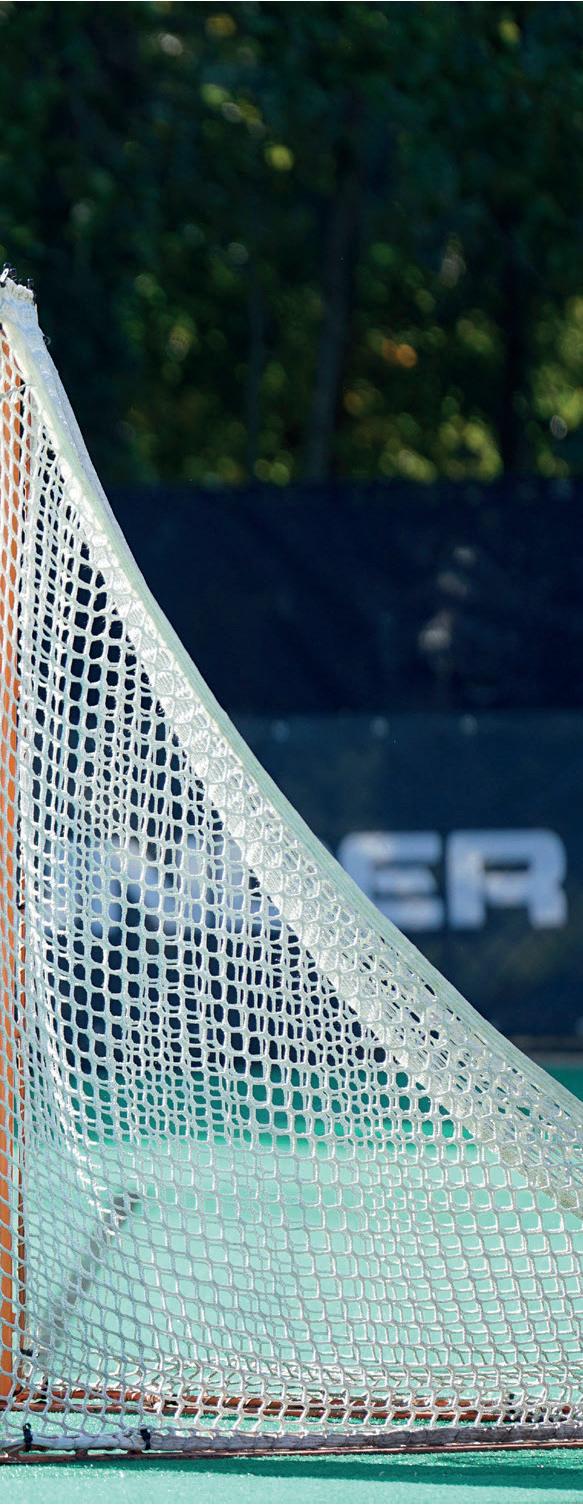
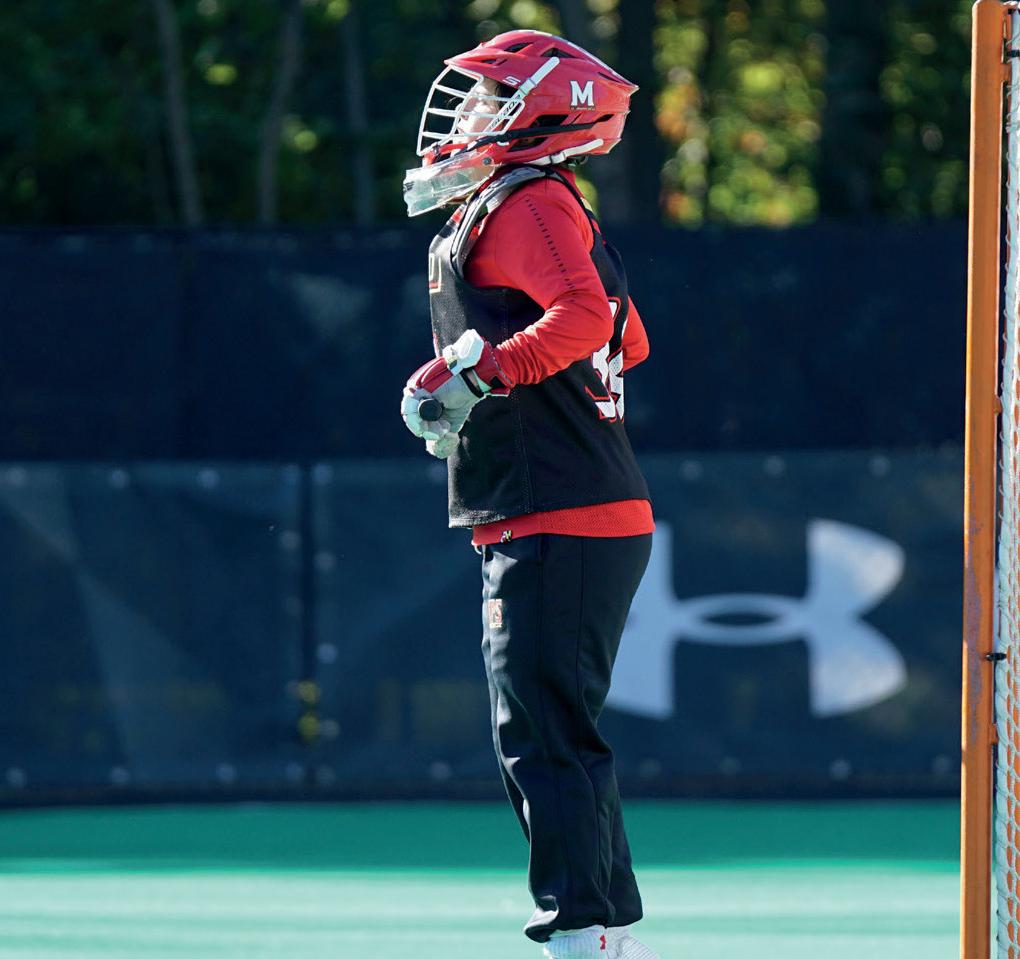


CIMSPA partners are increasingly asking for our thoughts on regulating their training. That is, whether training should be developed and approved into a qualification via an awarding organisation, resulting in a formally regulated qualification with certification and quality assurance provided by the awarding organisation overseen by a regulator.
Generally, my answer is yes. We can prove that regulation has increased standards, provided standardisation and improved the quality of the experience for learners in most instances.
But, there are exceptions. It’s worth considering the history of regulation in our sector. In sport, the United Kingdom Coaching Certificate (UKCC) endorsement scheme ran from 2004 to 2019 for sport’s governing bodies, providing training for sports coaches.
As part of the endorsement criteria, training had to be formally regulated and certificated by a regulated awarding organisation or university. This blanket approach to regulation saw the numbers of qualifications increase significantly.
A review of the scheme in 2018 drew no conclusions on whether regulation had increased the quality of coaches’ training. It did find, however, that the cost of becoming a coach had increased and some coaches and some sports were finding the cost to be a barrier to attracting coaches to become qualified.

Later, research by UK Coaching in 2020 showed that 54% of coaches did not hold a coaching qualification.
At CIMSPA we now have responsibility for endorsement across the whole sector, including UKCC endorsement. We’ve taken a pragmatic approach to the endorsement
of training and the role of regulation. Some things are quite clear. For example, to enter CIMSPA practitioner membership, training must be endorsed by us and awarded by a regulated awarding organisation, university or via an apprenticeship.
It’s important we have the right and proportionate approach to regulation. If we don’t, we are creating barriers for people and are spending money that could have greater impact elsewhere. Conversely, deregulating areas where there is a high risk of harm would be catastrophic.
Learning from good (and bad) practice in other sectors, we’ve developed a new policy and guidance on minimum standards for deployment. This gives us a clear evidence-based rationale to make decisions on whether we should provide a regulated or non-regulated approach to entering the industry, if we should check competence, and if so, how often.
In the coming months we’ll be bringing this new policy to life to provide clearer guidance on when formally regulated qualifications are needed and who should provide training and assessment. We’ll also look at how we monitor compliance (if necessary).
We’re talking to people about this every day. We’re well informed and can support you to make the right decisions for your organisation and your people. If you’d like to discuss it further, please do get in touch. Further details: info@cimspa.co.uk
“AT CIMSPA WE NOW HAVE RESPONSIBILITY FOR ENDORSEMENT ACROSS THE WHOLE SECTOR, INCLUDING UKCC ENDORSEMENT”


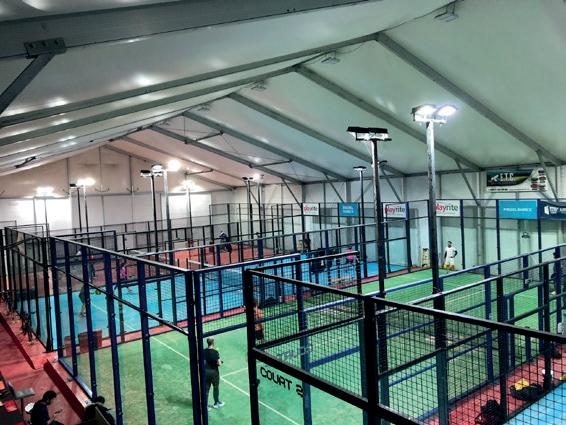


Mark Braithwaite has spent more than 20 years in physical activity, working in both the private and public sectors. His career has included stints at Cannons Health Clubs, Nuffield Health and Fusion Lifestyle. He joined management company 1Life – which operates 19 leisure facilities on behalf of local authorities – in 2014 and was named MD in 2018

You have a strong background in both the private and public sectors. How different are the two sectors? They are very different. The private sector has a lot more autonomy to make decisions and can be more agile when responding to social, economic or political changes. The public sector is generally more inclusive but, in most cases, operators are restricted to tight contractual terms which can create bureaucracy around decision making.
What are the biggest lessons the two sectors could learn from each other?
The programming and inclusivity of the public sector is hugely beneficial to the wider population and ensures everyone across the country can access physical activity whether in a physical site or outside of a site. Public leisure providers generally tend to work better with health & sport bodies, trusts & clinical commissioning groups.
On the other hand, as the private sector is more agile and less constrained from a contractual and pricing perspective, it generally tends to be more innovative and quicker to respond to changing trends and market conditions.
1Life is a lifestyle and management solutions company that engages with people in local
communities to enhance lives through health and wellbeing, physical activity, learning and the arts. We manage 19 venues nationwide – from leisure centres, swimming pools and golf courses to theatres – on behalf of local authorities and service around

1Life manages 19 venues on behalf of local authorities across the UK
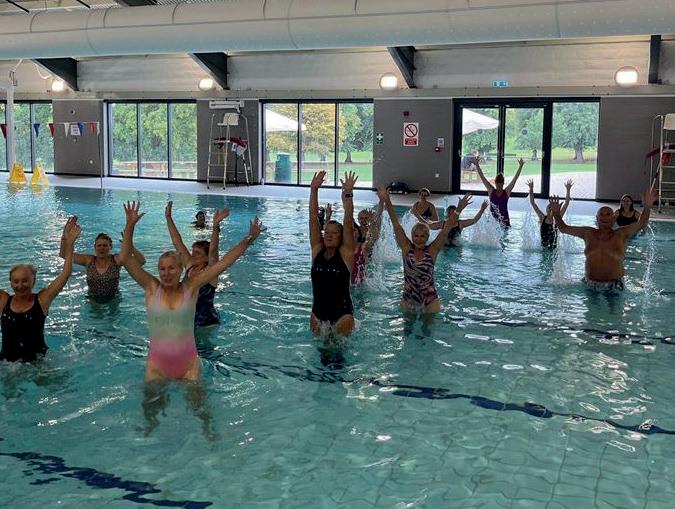
1Life
7 million customers across its portfolio of managed sites each year





7 million customer visits per year. We employ more than 800 people and have adopted a collaborative approach, focused on creating tailored solutions to help our local authorities achieve local outcomes and deliver results.
We’ve launched a number of initiatives to support people of all ages to get active. Working alongside Max Whitlock OBE and Tom Dean MBE we’re giving a number of ‘Aspiring Athletes’ the opportunity to train at our unrivalled facilities for free in a bid to support their dreams of a career in elite sport.

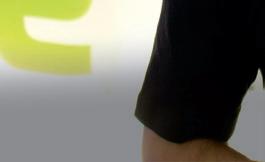
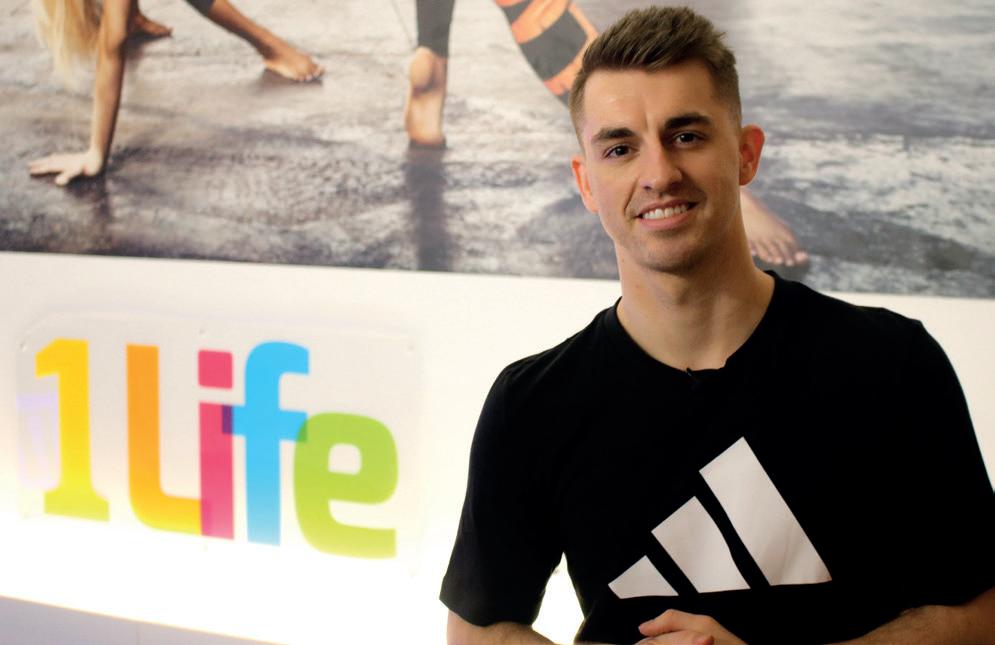


The chosen athletes also had a session with Max and Tom in October, where they took part in an open discussion about life at the top and took photos with the pair.
At 1Life, we fully recognise that not everyone wants a career in elite sport – and that, sadly, most people won’t ever join a gym. However, a healthy lifestyle is important for everyone and that’s what we are focusing on.

There’s been a lot of talk of “in-sourcing” recently – partly thanks to the pandemic. What are your views on that?
I can understand why many councils have made the decision to in-source, especially given that during Covid-19, many operators leaned on local authorities for financial support. However, many local authorities don’t have the expertise, experience, people,

or systems to ensure long-term viability. While some may be able to establish a solid business model, in some instances this decision has been made rashly and my view is that in a few years’ time, will be looking at moving back to an out-sourced model.

What do you see as the biggest challenges faced by the physical activity sector in general?




There are two things, right now it is the hugely inflated cost of utilities causing many leisure facilities to potentially close or reduce services. The longer-term issue facing the physical activity sector is the fact that health and physical activity is not a statutory service, therefore easy for council’s and the government to cut back on spending. After the lockdowns ended, gym and leisure centres were some of the last venues to open after pubs and restaurants, despite their being no evidence to support the decision.
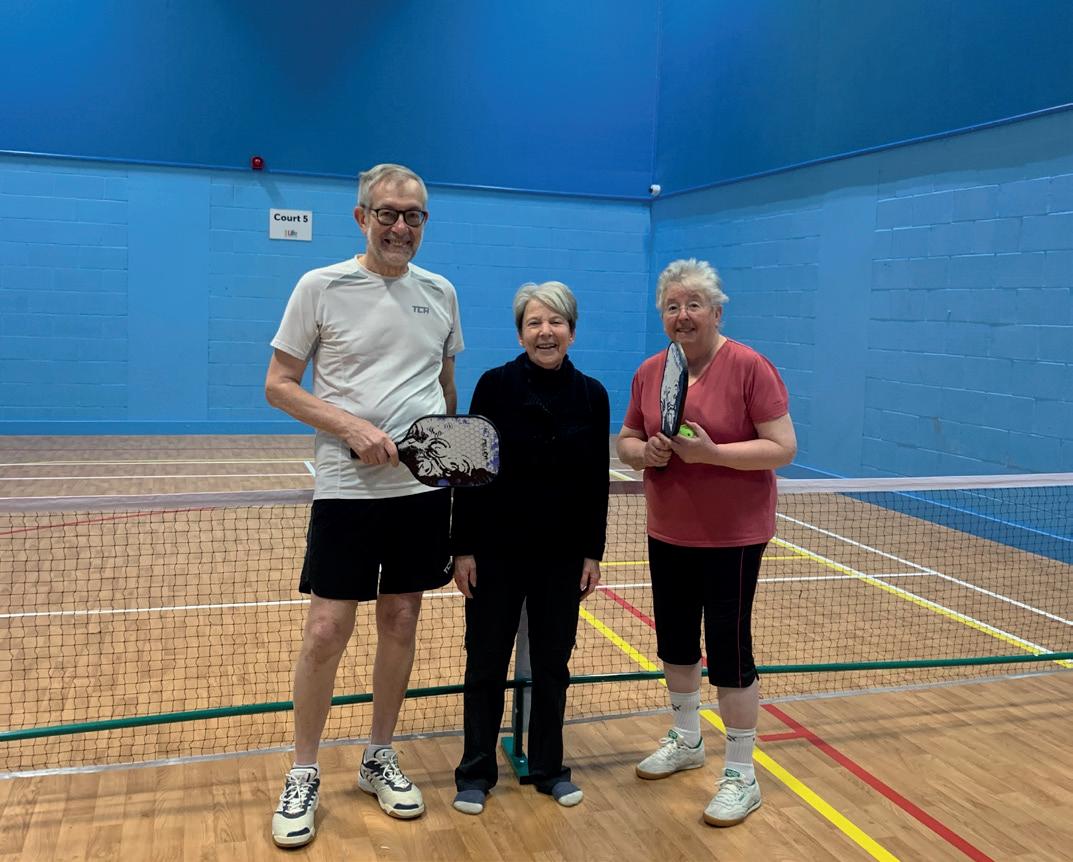
If you could be PM for one day, what new law would you bring in to help people get more active more often?
I would make physical activity and exercise a statutory service, alongside other core services such as education and health. ●
























Rugby league is the coolest game in town at the moment, thanks to the hugely successful World Cup being held in England. SportsNation takes a closer look at the plans to grow the game and to invest in new facilities.
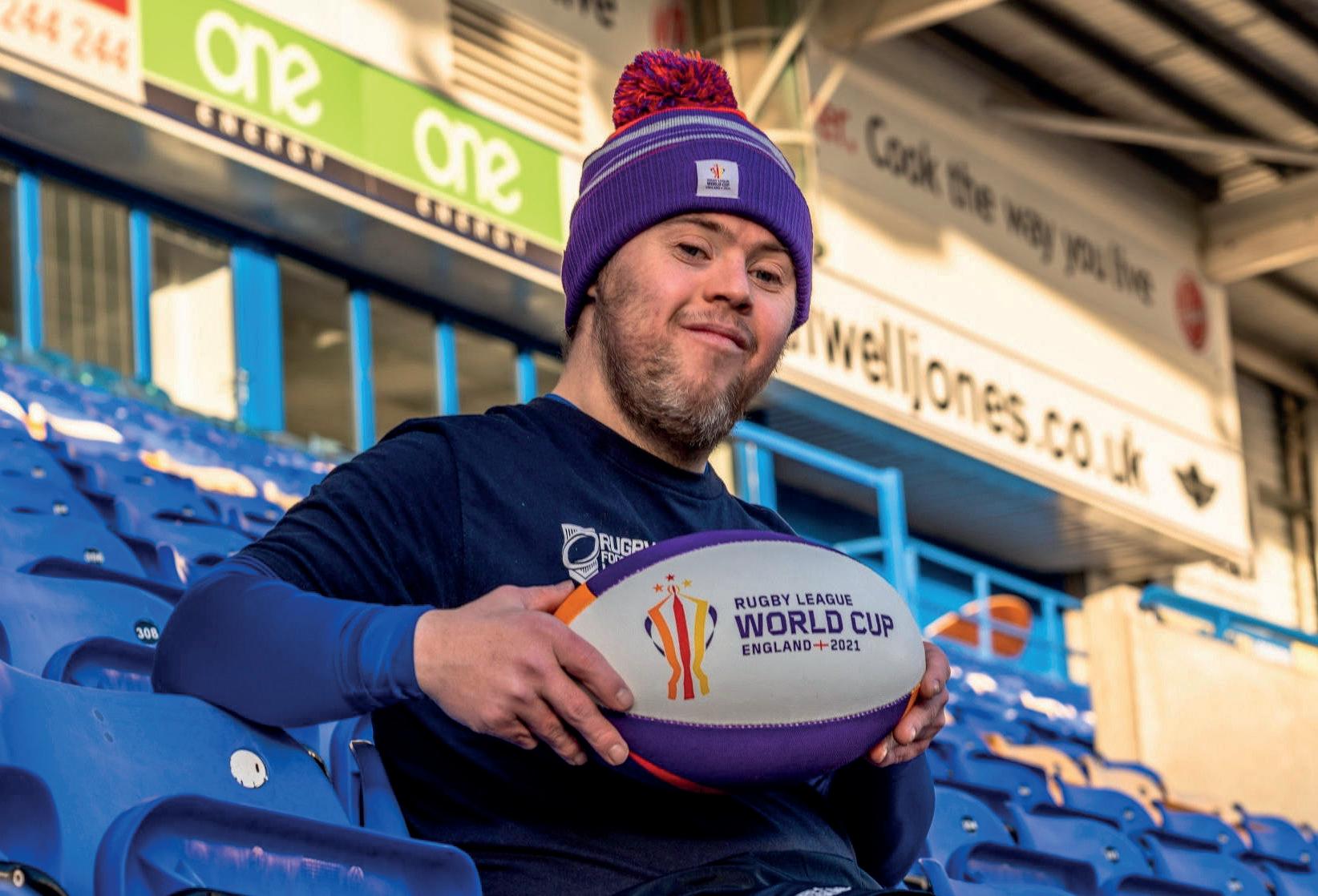

The Rugby World Cup 2021 (RLWC2021) in England – being held a year later than originally scheduled due to the pandemic disruptions – has captured the imagination of the nation. The games have broken attendance records both at the venues and on TV and live streams. While the likes of England and Australia were always expected to pull in the crowds, the fact that 6,800 people packed into the Halliwell Jones Stadium in Warrington for a group D game between Papua New Guinea and Cook Islands says everything about the competition’s success.
So how will the sport of rugby league utilise the increased interest in it? How does it plan to benefit from the exposure to new audiences – and turn them into new players and volunteers? Most importantly, what tools do facility owners and operators, who want to create opportunities for participation in rugby league, have at their disposal?
The sport is looking to engage players from all backgrounds


There is no doubt that RLWC2021 has strengthened the position of rugby league in England. This is largely thanks to the organising committee, who, in partnership with the sport’s national governing body the Rugby Football League (RFL), stated that one of its main aims was to use the tournament as a catalyst to develop the game and “engage with the widest possible audience”.
From very early on, the strategy to grow the game included a plan to improve facilities too. During the bid stage, the government promised a £10m injection of funding towards infrastructure, community facilities and talent pathways. Those plans, under the CreatedBy RLWC2021 banner, are now being delivered in partnership with Sport England as part of the tournament’s wider ‘Inspired by 2021’ plan.
And, as each pound of the £10m is being match-funded, the investment means that the actual total investment will far exceed £20m.
“So far, we’ve delivered far in excess of 220 projects, which in many cases have transformed local facilities,” says RLWC2021 chief executive, Jon Dutton.
“Those include marquee projects, like the £1m upgrade of facilities at Salford City Roosters.”

At Salford, the work has resulted in a brand new clubhouse and has enabled the club to create its first ever girls’ team – as well as host more competitions and create an expanded programme of community activities and events.
“These are big, significant projects,” Dutton adds. “Overall, we’ve got a target of investing more than £20m in community rugby league (including match funding).”
“The fact that 6,800 people packed into the Halliwell Jones Stadium in Warrington for a game between Papua New Guinea and Cook Islands says everything about the competition’s success”© RUGBY LEAGUE WORLD CUP
Increasing participation among women and girls

Funding is still available from the CreatedBy RLWC2021 Capital Grants Programme, too. Organisations have the option to apply for small-scale requests of capital funding, up to £15,000, for items such as kits for new teams, training equipment for sessions that will engage new players, grounds maintenance equipment to increase the quality of pitches, goal posts and post protectors.
Funding can also be sought for large-scale requests to invest in current provision such as clubhouse improvements, pitch improvement works and floodlighting, or the creation of new facilities that can support the growth of the game and long-term sustainability of clubs.


While most rugby league games – both at grassroots and elite level – take place on natural grass pitches, there has been an increase in the number of matches played on 3G surfaces. Some rugby league clubs and facility operators have invested in 3G pitches mainly because it allows year-round games and can also act as a revenue generator, due to the hours of play it offers.
One of these is in Warrington, where Warrington Borough Council worked in partnership with the Warrington Wolves Foundation to secure funding for a rugby league centre of excellence. The £1.2m project received funding from the RLWC2021 CreatedBy legacy fund, with £600,000 invested towards a new 3G pitch facility at the town’s Victoria Park.
Another recent 3G rugby league pitch project – also part-funded by the CreatedBy fund – can be found at the home of NWML Division One club Leigh Miners Rangers. According to Leigh MR co-chair, Mark Dyer, the new facility will be instrumental in the club’s plans to grow the game.
“The new pitch will make the club a nicer and more secure environment for the kids,” Dyer says. “We want to get more young kids interested from all sections of society in the surrounding areas and give more opportunities to kids who probably never even thought about it.”
The benefits of using 3G surfaces to grow the game are obvious. A synthetic turf can give 70hrs of play a week, while a good, wellmaintained grass pitch will only offer less than 10.
To assist potential developers of synthetic turf rugby league pitches, the RFL has published guidance on synthetic playing surfaces. Called Guide to the use of synthetic turf pitches for competition and training, it was first published in 2012 and has since been updated as turf technology has advanced.
A third edition was published in 2020 and it describes many of the factors that need to be considered during the design,
is a key goal for the sport
“A synthetic turf can give 70hrs of play a week, while a good, wellmaintained grass pitch will only offer less than 10”
specification and construction of a synthetic turf sports pitch. It also includes advice on maintenance, life cycle costs, and postinstallation monitoring and testing. In addition, the Sports and Play Construction Association (SAPCA) has published a number of codes of practice relating to the design, installation and maintenance of 3G surfaces (https:// sapca.org.uk/guide/codes-of-practice/).
These are exciting times for rugby league. In addition to the effects and impact of the successful World Cup, the sport is set to benefit from the Reimagining Rugby League Consultation Project, launched by the RFL earlier this year, in partnership with
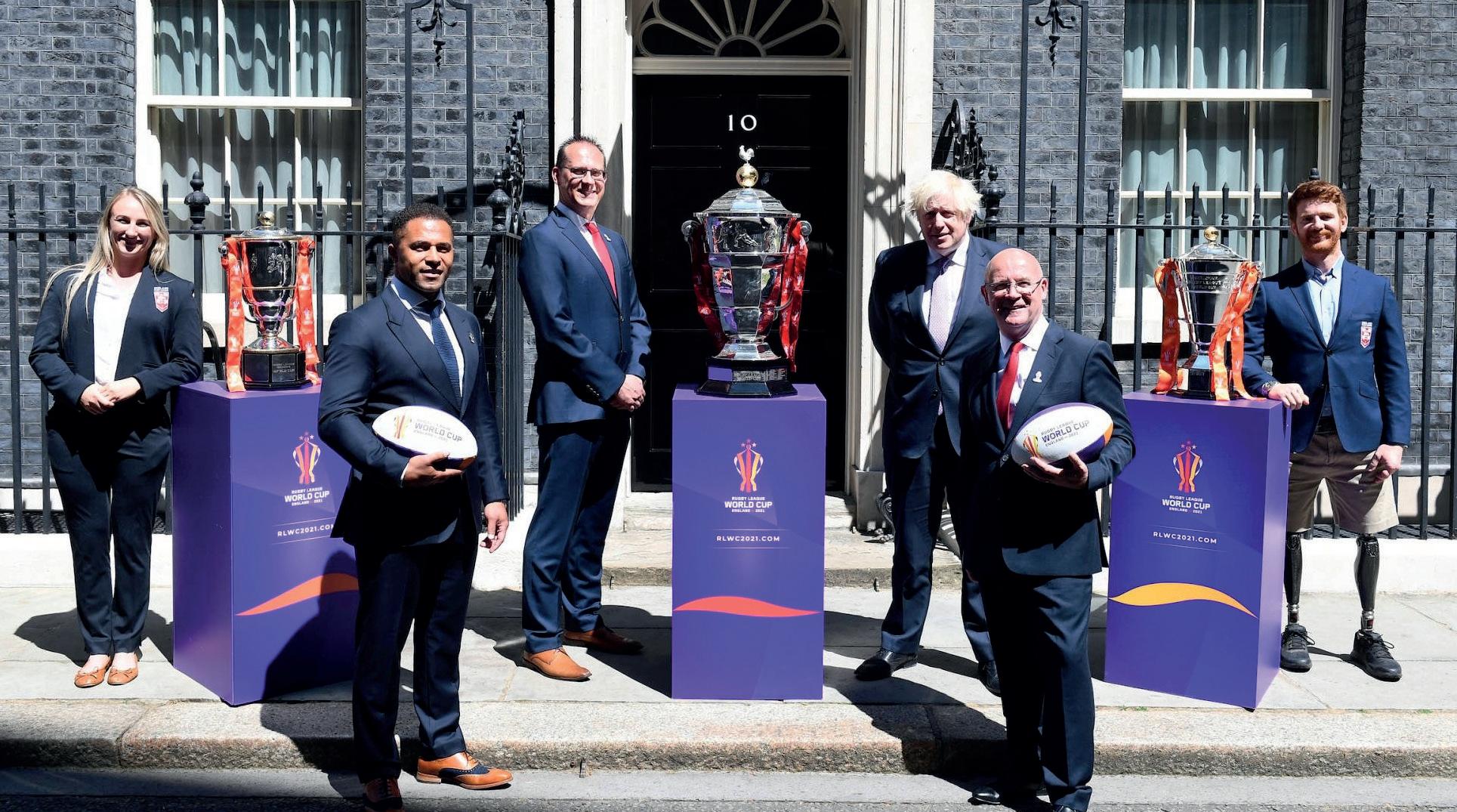
Super League Europe (the sport’s top flight competition) and global sports agency IMG. The Reimagining project has now completed its first phase, which has resulted in 12 recommendations aimed at growing the game as well as driving the long-term value and impact of the sport. One of the 12 recommendations is for the sport to develop an expansion strategy that targets and supports the growth of the women’s and girls’ game, and also growth in new markets.
Importantly, the “reimagining” of rugby league has also seen a new long-term deal being reached on how income from the different funding and revenue sources should be distributed across the sport.
According to Simon Johnson, chair of RFL, the reimagining strategy will transform the sport - as well as secure its future growth. “The proposals recognise the need to make significant changes to address the challenges facing the sport and recommendations for those changes, which have the potential to transform the approach, mood and reality of the sport in the UK and beyond,” Johnson says.

●


A key goal of the 2021 World Cup has been to engage with the widest possible audienceHaving all three world cup events in one has helped bring the game together © RUGBY LEAGUE WORLD CUP
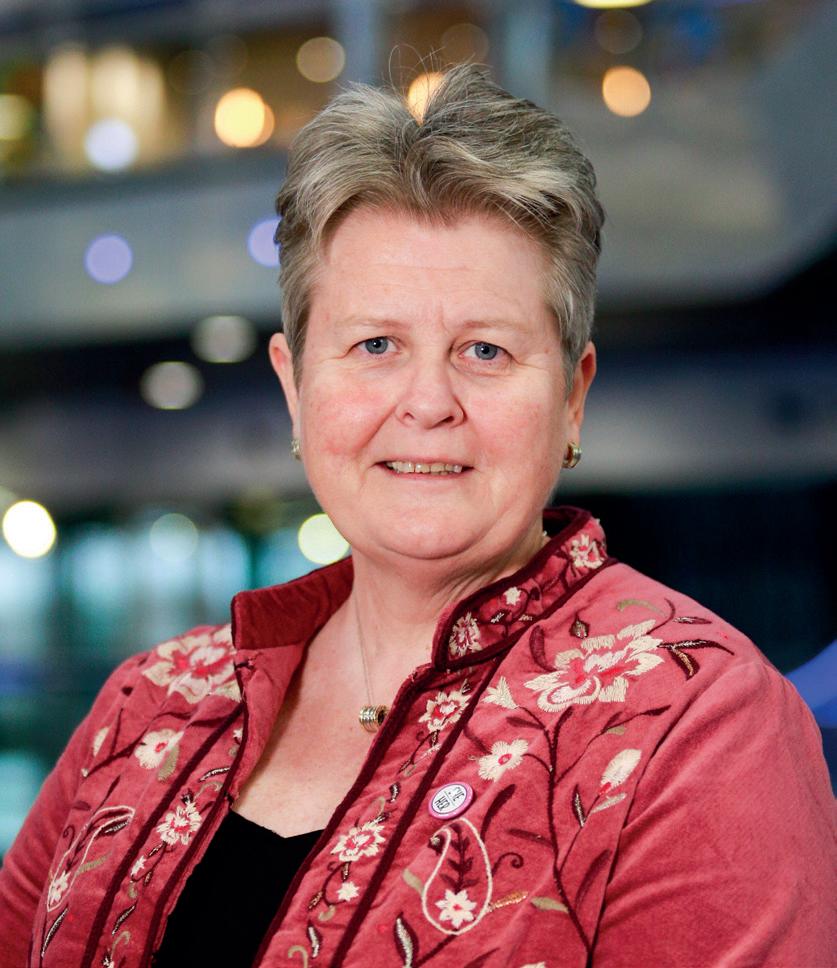
How would you describe your three years in charge so far?
Collaborative, challenging and fluid! The last three years have been some of the most difficult for the sector, but have also shown the incredible togetherness and adaptability that is the strength of our sport and recreation organisations.
Personally, as an intuitive collaborator, I have welcomed the increased cooperation that the pandemic led to. There are so many exceptional leaders in our sector who demonstrated the resilience required to lead their organisations through troubled times, and we have learned so much through our shared experiences and challenges.
Now that we have emerged into a new way of working, we must continue this momentum to ensure that sport and recreation plays a central role in the nation’s recovery.
What’s been the biggest challenge you’ve faced during your tenure?
Undoubtedly the pandemic, although that could be rivalled by the cost-of-living crisis in the next year or so. However, as we’ve adjusted to this new world since COVID-19 arrived, it’s easy to forget just
how much of a shock it was initially, and how little we all knew about it.
How well has the sector dealt with the pandemic?
I think it dealt with it remarkably well, considering the uncertainty that we were suddenly plunged into, and the constant changes on the guidance and timelines of coming back out of restrictions.
We saw so many community clubs and organisations adapting to the new normal and providing support for people online or in a socially distanced way.
This was so vital as there are so many vulnerable people in communities who rely on sport and recreation for their mental and physical health, so the fact many organisations adapted so well to reach them is testament to our sector.
This was just one aspect of the support provided by those organisations, and I personally know a number of colleagues in the sector who were working exceptionally long hours to adapt the ways in which their activity could be delivered and to safeguard the future of their organisations.
What we did see was a very collaborative and open approach to supporting each other during this time. This way of working
Within a year of her appointment as CEO of the Sport and Recreation Alliance, Lisa Wainwright was dealing with a pandemic. We spoke to Lisa about the sector’s response to COVID19 and about the Alliance’s future plans
We must continue this momentum to ensure that sport and recreation plays a central role in the nation’s recovery
Wainwright was awarded an MBE in the 2021 Birthday Honours List “© SPORT & RECREATION ALLIANCE / MARK PRITCHARD
has continued following the end of the pandemic, and these stronger relationships will only help to advance the advocacy and promotion of the activities we all love.
How well is the sector’s recovery going?
Our research with Sheffield Hallam University shows us the sector had been recovering well until the cost-of-living crisis began, which has put another huge strain on everyone, from national governing bodies right down to community clubs.
With costs rising rapidly, many clubs are going to find it incredibly difficult to continue operating without significant financial help.
Many of these clubs are the bedrock of their communities and of so many people’s lives, so it is imperative that we are doing everything we can to support and help them and ensure as many people as possible can still feel the benefits of sport and recreation.
What are the biggest learnings the sector can take from the pandemic?
I think it’s just how adaptable we are and how, even in circumstances which seemed impossible, we found a way to continue.
However, we’ve also learnt that it isn’t feasible to continue without support –sport and recreation in this country needs
The physical activity sector had been recovering well from the pandemic – until the cost of living crisis kicked in

support from the government to ensure its continued survival. There are already so many fantastic volunteers up and down the country that are holding up the sector, but it is a sector that relies so heavily on funding.
With the right funding, organisations within the sector have a proven ability to enhance people’s lives through the power of sport, physical activity and recreation, so it’s vital we don’t get left behind.
Are you satisfied with the level of government support?
Generally, we have been appreciative of the support that government has provided in difficult circumstances for every sector. We were pleased to see recent energy price support for business which will help to reduce expenditure for members, clubs and grassroots organisations.
However, this support is only covered until April 2023, and we are working with government to provide evidence for what further assistance may be required once we reach this deadline. It’s clear across all the sector, from grassroots to professional level, that we will need more financial support to safeguard the long-term future of our clubs and activities, unless energy prices come back down to a reasonable level.
Over the last year we have also welcomed the announcements that government would be investing over £235m in new and refurbished community sports facilities and parks and £200m in the Holiday Activities and Food Programme alongside funding for active travel, support for UK bids to host major sporting events and explicit recognition of the sector’s contribution to the Government’s levelling up ambitions.
As part of the Alliance’s role in the National Sector Partner Group (NSPG), we continue to call for more progress on specific tax changes we have proposed in our Unlocking the Potential report – including changes to the VAT treatment of sport, physical activity and recreation, a re-examination of the red diesel exemption and further reform of the business rates system.

We will continue to advocate for reforms to the tax regime alongside wider policy changes which support the growth of our sector given the contribution improved health and wellbeing can make to economic prosperity.
The biggest obstacle we have collectively faced is the instability and uncertainty in Westminster. We hope that the new Prime Minister and his team will provide more long-term clarity and consistency in the support offered to our sector – starting with the upcoming Autumn Budget.
Last year we released our new four-year strategy – Support. Recover. Achieve. At the time, the nation was re-emerging from the pandemic and the restrictions that had been enforced upon us. At the Alliance we were aware that the support we had provided during this time needed to continue and
even be more directed and enhanced.
Since the strategy was published, we have seen political upheaval, global unrest and the cost of living crisis. This has provided even more intensity on the role of the Alliance to provide a tailored support function for its members and on behalf of grassroots physical activity.
SRA launched its Support. Recover. Achieve four-year strategy in 2021
There are several objectives which form the strategy, and they highlight the need to promote and advocate the social and economic benefits of activity. We have also committed to supporting our members to become more diverse and inclusive –acknowledging that the power of sport and recreation must be accessible to everyone.

As a founding member of the Sport Environment Climate Coalition (SECC), we are also helping our members adapt to change and supporting them to become more sustainable. This takes on many forms and doesn’t just encompass environmental sustainability, we also want to help sport and recreation to thrive in the long-term.
With the uncertain nature of global and national events unfolding, we have to be flexible and responsive to the needs and demands of our members. Ensuring that our members receive the help they need will always be a priority for the Alliance, and we continue to help them daily with our policy, governance and research support.
With the uncertain nature of global and national events unfolding, we have to be flexible and responsive to the needs and demands of our members
The Alliance is involved in a number of important projects at present, including the work previously mentioned with the SECC and NSPG.
To help evidence and champion the role of physical activity, over the last year we have been working on a number of research projects with our members.
Shortly, we will be publishing a report which focuses on the impact of the COVID-19 pandemic and cost of living crisis on our community clubs. It will reveal the current situation of grassroots activity and shine a light on the financial and facility concerns that a huge number of organisations are facing.
Following this, we will be releasing a report which showcases the phenomenal social impact of movement and dance for the first time. These activities play a wonderful role in mental and social wellbeing of our nation, and we look forward to highlighting this.
We are also currently leading a project to update Concussion Guidance for the sector, having been tasked with the role by DCMS, making sport and recreation safer and more sustainable in the process.
The Alliance has long been a supporter of good governance and with this in mind we are launching The Inclusivity Hub, a go-to support system of toolkits,
SRA actively promotes the health and social benefits of sport
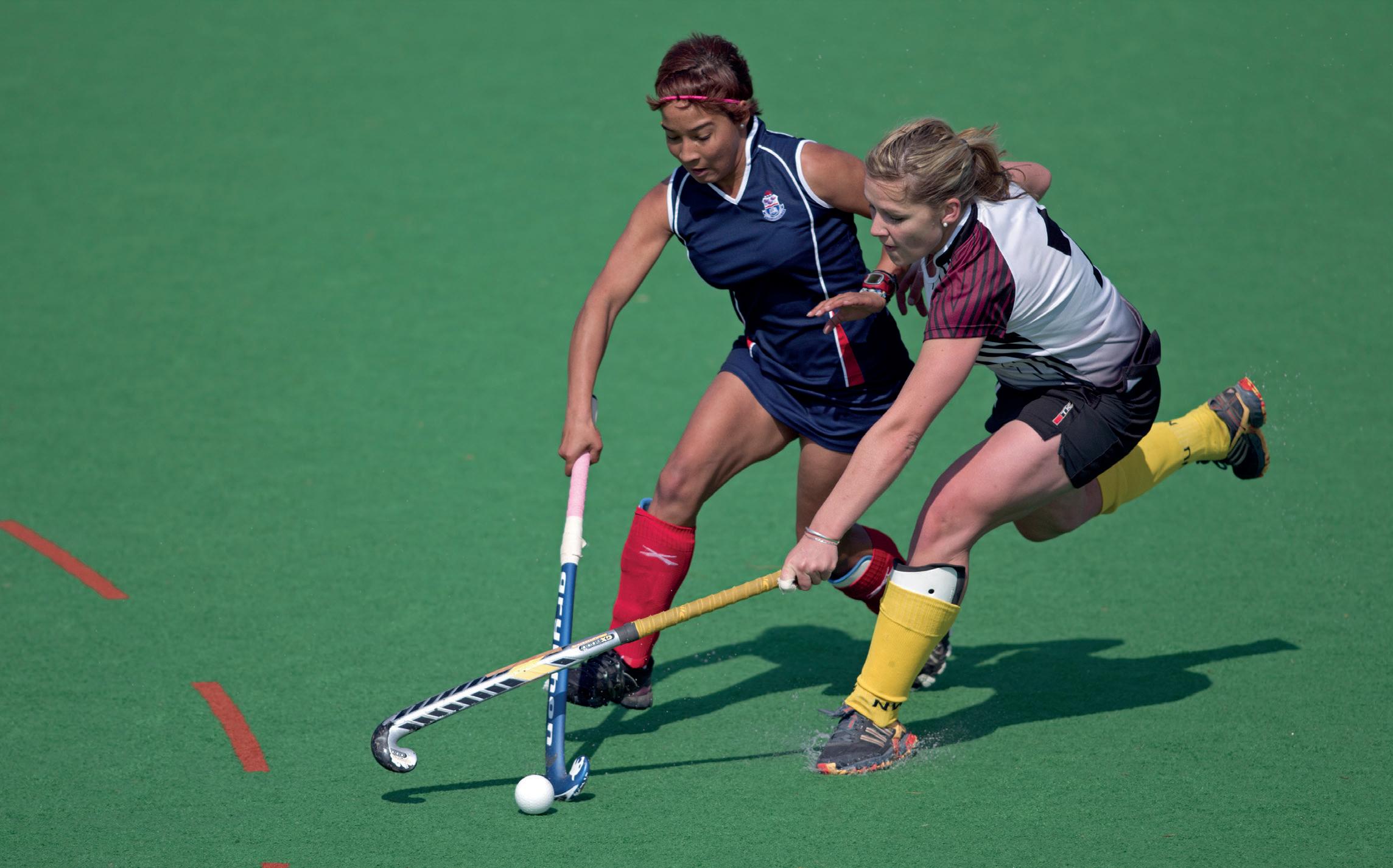
advice and guidance to help every organisation in the sector become more accessible, open and inclusive.
Earlier this summer, we officially welcomed the handover of the International Working Group on Women and Sport and we will be working with the UK Secretariat to provide our members with the opportunity to engage with, and learn from, this group over the coming years.
How would you describe the UK’s current facility stock? Do we have enough quality facilities to help create an active nation?
Presently, the biggest concern would relate to making sure that the current infrastructure is protected. I think everyone has seen across the media how leisure centres, swimming pools and sports facilities are closing, or at least at threat of closure, due to escalating costs.
We can only make activity more accessible if we provide people with the opportunities to take part. Reducing this capacity will only lead to more inactivity and the reduced social outcomes that will inevitably follow.
The Alliance is currently undertaking research to map the facility stock for activity across the country which will highlight those areas where opportunities are either severely restricted or not available. l
A survey by Activity Alliance shows that, when it comes to taking part in sport and physical activity, many disabled people feel forgotten following the pandemic

Disabled people are now almost twice as likely to be inactive as non-disabled people

Areport by the Activity Alliance has shown that the COVID-19 pandemic has widened existing inequalities in sport and physical activity for disabled people. The proportion of disabled people who regularly take part in physical activity fell from 25% in 2020 to just one in five (20%) in 2021. As a result, only four in 10 disabled people currently feel they can be as active as they want, in contrast to more than two thirds of non-disabled people (69%).
The figures come from the recently published Annual Disability and Activity Survey 2021-22. Now in its third year, the annual report tracks the perceptions and experience of sport and activity of disabled people and those with longterm health conditions. Most people (83%) who took part in the latest survey had more than one impairment type.

The report’s findings are in line with Sport England’s Active Lives data from April 2022, which showed that disabled people are now almost twice as likely to be inactive as nondisabled people (42.4% compared to 22.6%). What is clear, however, is that the low levels of activity among those with impairments
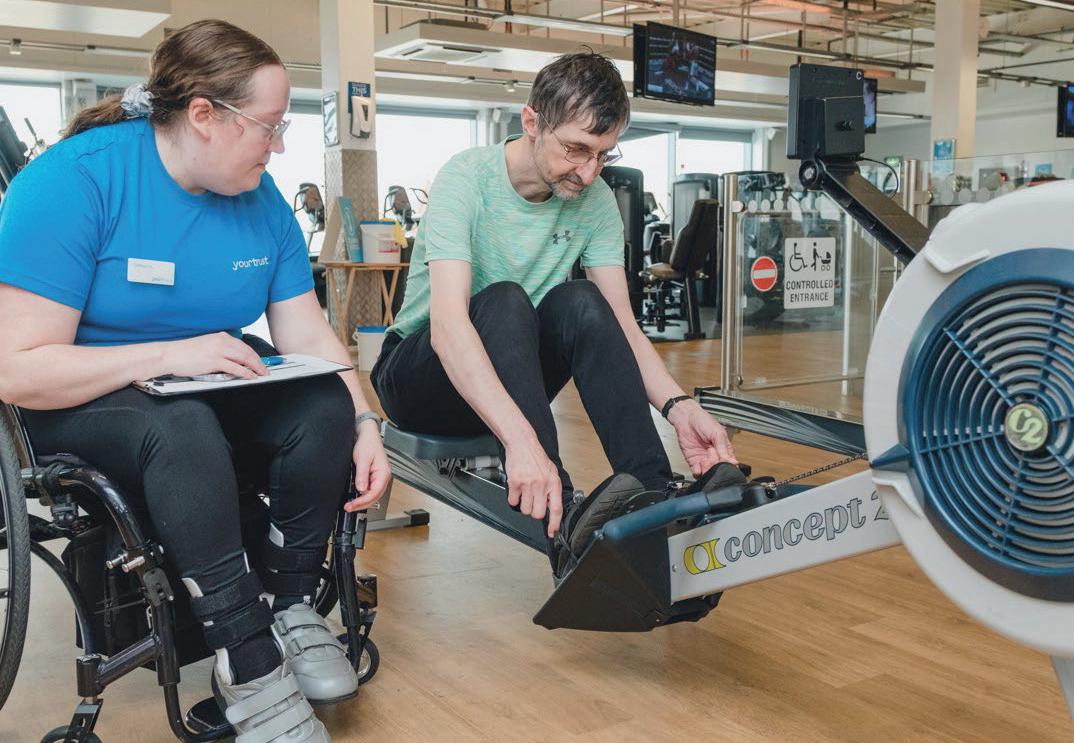
isn’t down to choice. The Annual Disability and Activity Survey shows that nearly four in five of disabled respondents (77%) said they wanted to be more active, compared to just half of non-disabled respondents (51%).
This figure means that there is an ongoing, unmet need for activities and facilities that cater for those with impairments. When asked about what would enable them to be more active, a third (32%) of those with impairments said they would like to see better facilities and environments in which to be active in a safe way.
There is no doubt that the pandemic has made things worse. Describing the barriers they faced to being active, those with disabilities cited fewer opportunities
Only four in 10 disabled people currently feel they can be as active as they want
than before the pandemic – with activities, facilities, classes and/or programmes having stopped and not returned.
This fall in opportunities is reflected in how less than a third (28%) of those with impairments have been encouraged to return to activities following COVID-19 restrictions. Of those, it is people with mobility impairments that are the least likely (20%) to feel confident about playing sport in a post-pandemic world.
“The Annual Disability and Activity Survey gives us all greater insight into disabled people’s attitudes towards and involvement in sport and physical activity,” says Barry Horne, Activity Alliance’s outgoing CEO.
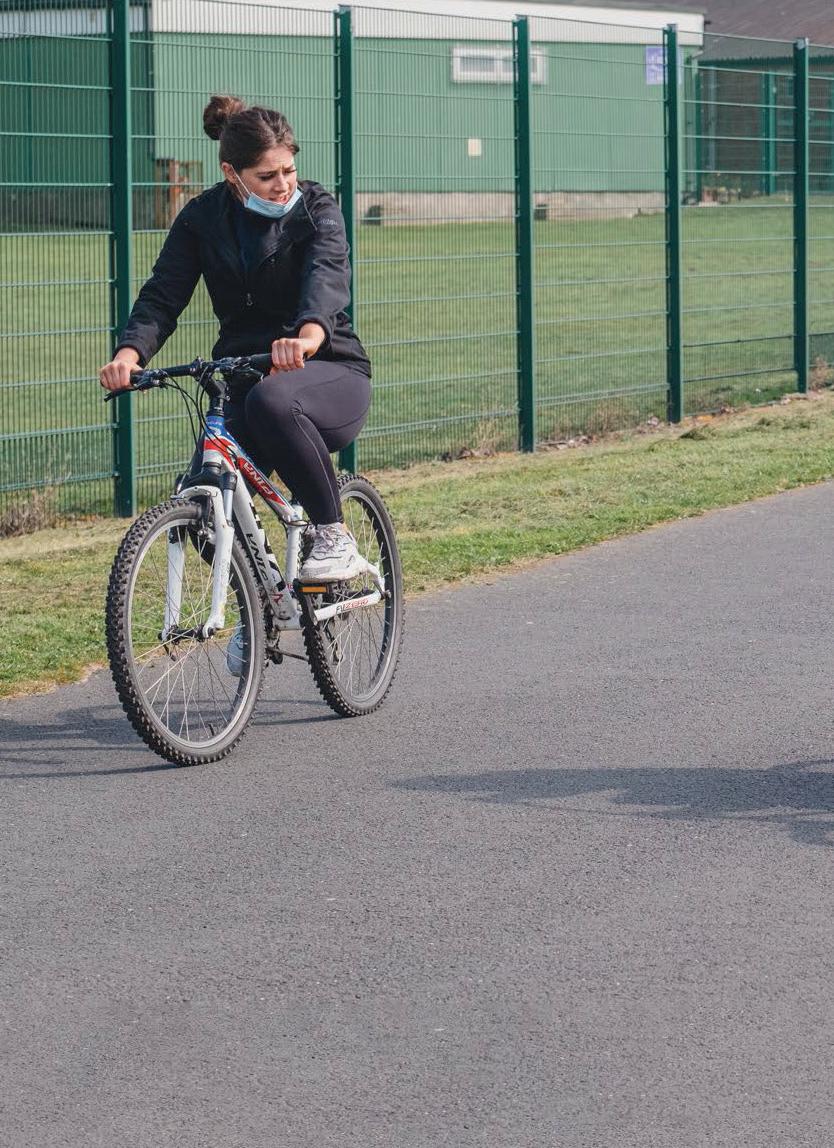
“Last year, the survey played a crucial role in helping to uncover the impact of an extremely challenging year. The COVID-19 pandemic had a huge effect on disabled people’s motivations and ability to be active.
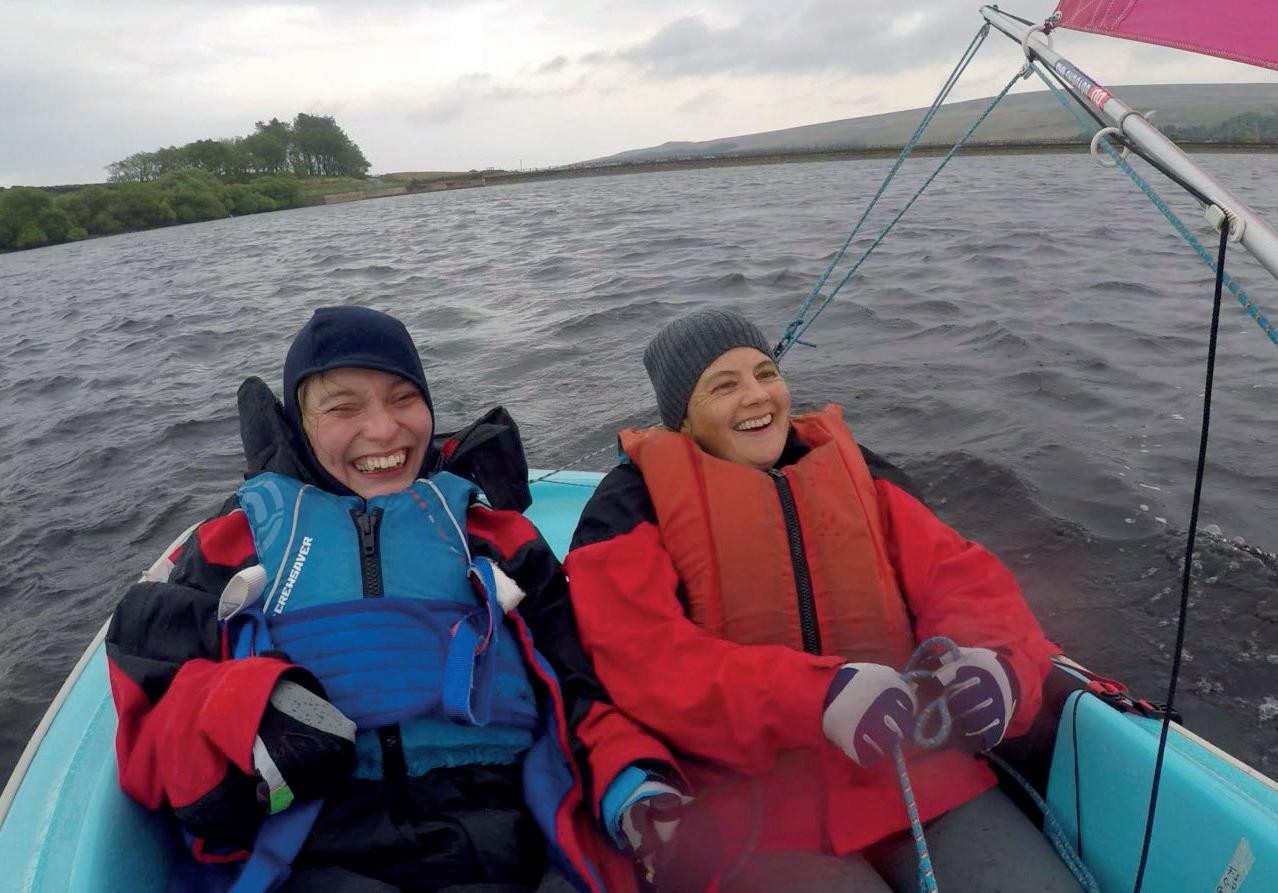
“Many of the findings this year show the stark differences between disabled and nondisabled people’s activity. They remind us of the extensive work yet to be done if we are truly going to tackle the deep-rooted inequalities that exist for disabled people.
“The survey gives an indication of the challenges and opportunities that lie ahead after the pandemic. We know that organisations working within sport, leisure and physical activity continue
to be tested as they find new ways to recover and attract participants again.”
The findings have enabled the Activity Alliance to identify four key themes which often create barriers for disabled people to get active. These are that disabled people feel that: l they are being left out of the return to activity following the pandemic l they are less connected to sport and activity l when they do take part, experiences are less positive and inclusive than before the pandemic l physical activity isn’t suitable or safe.
To tackle these four barriers, the Activity Alliance has come up with
This latest insight empowers us all to make meaningful changes
Those with impairments often feel that some activities “aren’t for them”
The survey suggests a decrease in the number of organised activities for disabled people
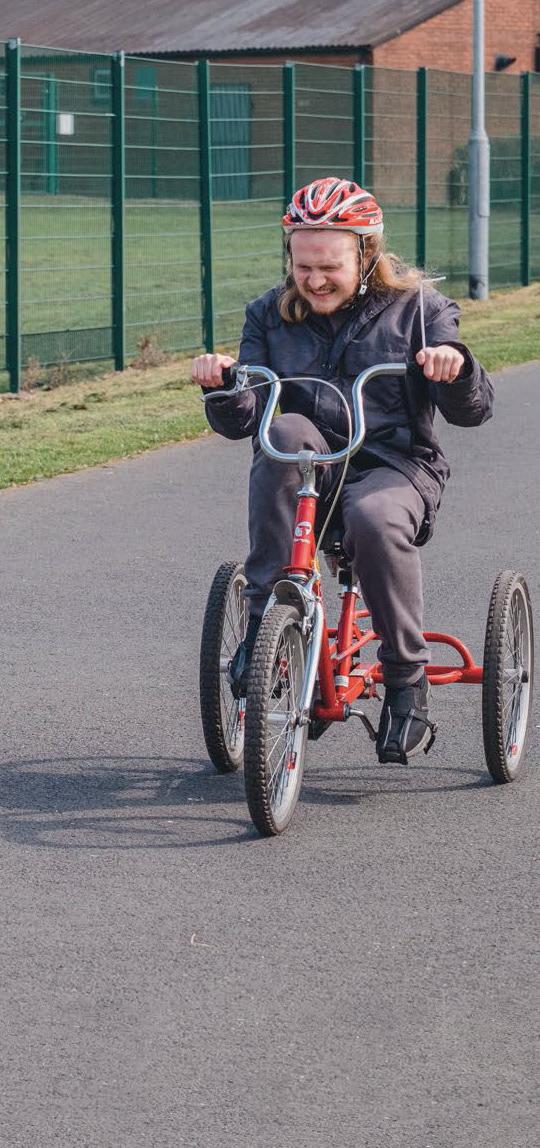
four recommendations for the physical activity sector. These are to involve those with impairments in all sport and physical activity offerings; to support and encourage the disabled to feel like being active is for someone like them; to educate the sport and physical activity sector workforce so it can provide a better experience; and to provide reassurance and tailored advice on how to be active.
“We urge leaders to make disabled people a priority,” Horne adds.
“Put disabled people at the heart of the pandemic recovery and establish plans that are more inclusive, accessible and welcoming like never before.
“We are particularly concerned about disabled people feeling like they are left out of the return to activity. There
are signs we are losing the progress we made before the pandemic, with disabled people now recording fewer positive and inclusive experiences.
“There is a clear call for closer connections to health professionals within sport and leisure. To help reduce disabled people’s fears, like risk and safety while being active, and enable tailored support through trusted influencers.
“As we strive to achieve our vision –fairness for disabled people in sport and activity - this latest insight empowers us all to make meaningful changes. Changes that have genuine impact on disabled people’s lives in every community should be the goal. To have a happier and healthier nation in the future, disabled people must be part of the conversation. We must not let anyone miss out or feel forgotten.” l
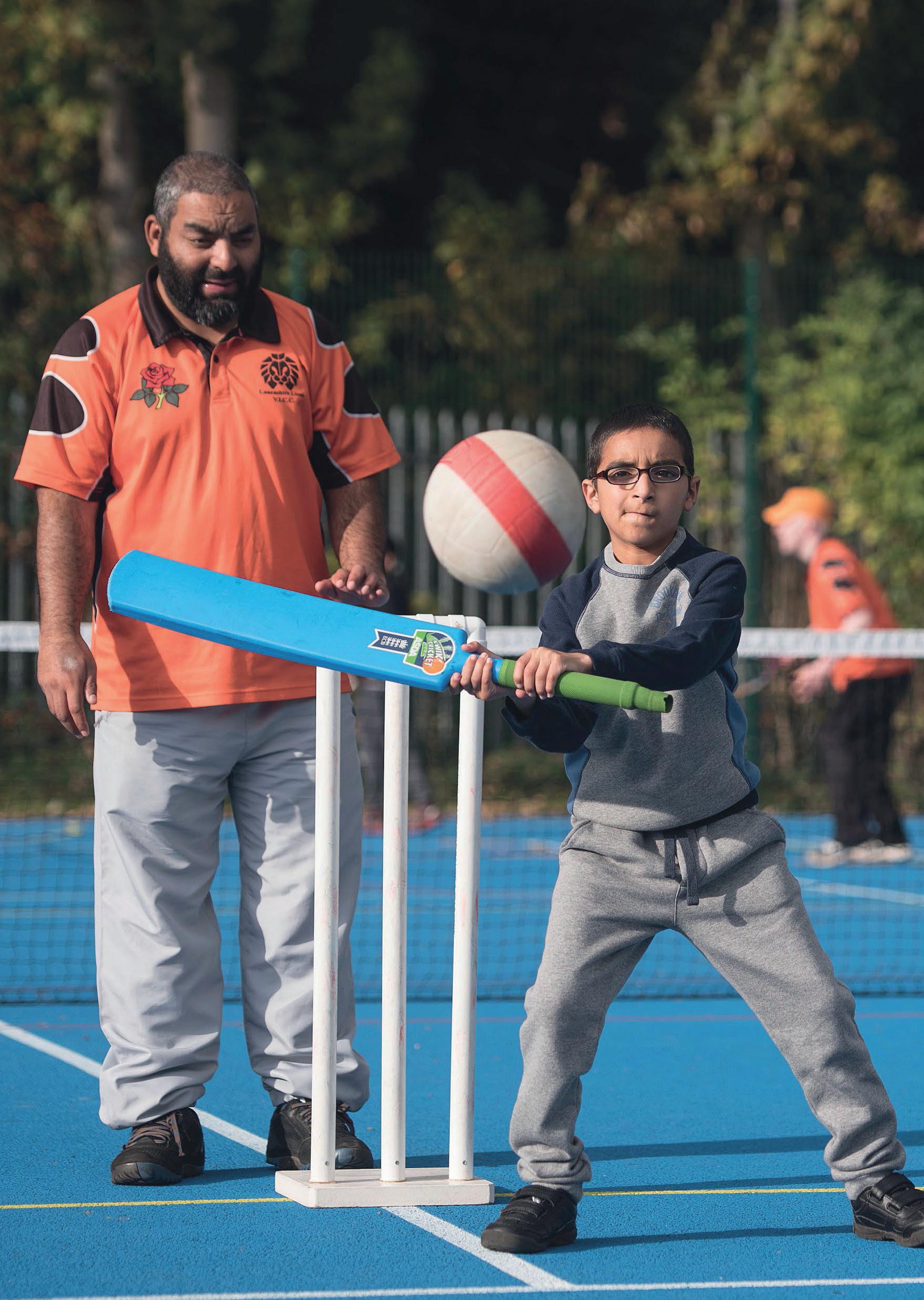
Ever since Qatar was awarded the rights to host the 2022 FIFA World Cup in 2010, the tiny gulf nation has had to deal with controversy. From claims that the country “bought” the tournament to concerns over its treatment of foreign labourers, disregard for human rights and its laws regarding homosexuality, the Arab nation has faced an uphill task in trying to keep the focus on footballing matters.
It hasn’t been plain sailing regarding on-pitch issues either. There was, initially,
fierce and wide-spread opposition to a winter tournament from European leagues, who said it would disrupt and extend their seasons. Doubts were also cast about the sensibility – and sustainability – of creating eight huge stadiums needed to host the tournament in a country smaller than Wales. But here we are, all ready for the opening game on 20 November. And if something is for certain, it is that the players will have the benefit of playing the games in superb new venues.
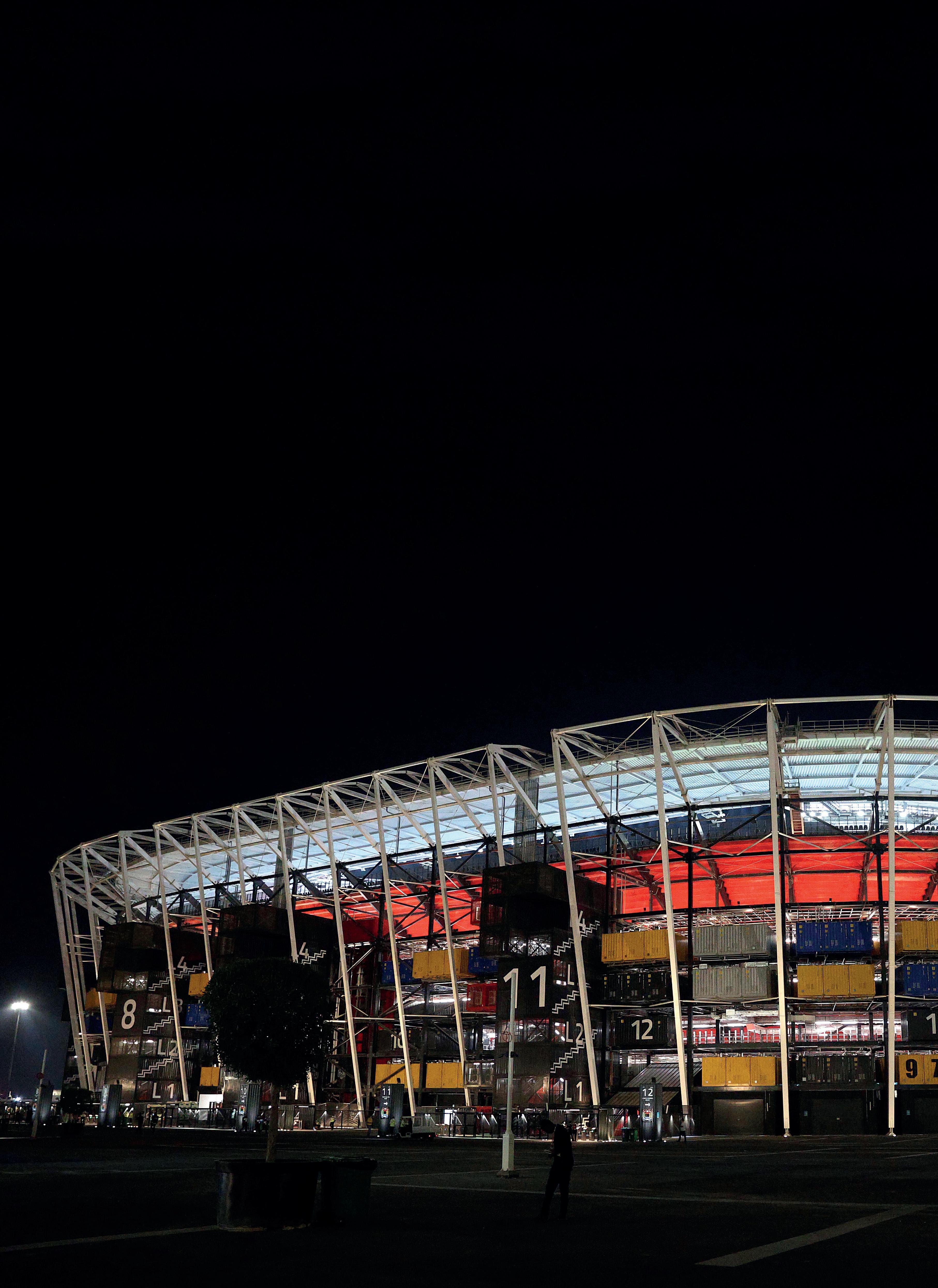 The FIFA World Cup in Qatar is upon us. SportsNation takes a closer look at the eight new stadiums hosting the 64 games
The FIFA World Cup in Qatar is upon us. SportsNation takes a closer look at the eight new stadiums hosting the 64 games
Capacity: 40,000
Architects: Fenwick Iribarren Architects Games: six group games and one round-of-16 match
The tournament’s only waterfront venue was constructed using standard shipping containers and modular steel elements, echoing the nearby port and the industrial history of the location. The stadium’s clever modular design meant that fewer normal building materials were required than in traditional stadium development, which helped keep construction costs down.
The result is a distinctive, boldly colourful and modern arena – and the first fully demountable, covered football stadium. The containers and superstructure will be reused in legacy mode to create business and leisure facilities for the local community.
The education City Stadium has a focus on sustainability
Capacity: 45,350

Architects: Fenwick Iribarren Architects & Pattern Design Games: Six Group games and two knock-out games
The stadium is located within several university campuses at the Qatar Foundation’s Education City. The diamond-inspired venue – the façade of the Stadium is conceived as a shimmering diamond – is designed to host a vast range of sporting events.

More than half (55%) of the materials used on the project came from sustainable sources and 28% of construction materials have recycled contents. As a result, The project has been awarded five stars under the Global Sustainability Assessment System (GSAS), making it one of the first stadiums in the world to achieve such recognition.

Capacity: 80,000 Architects: Foster + Partners & Populous Games: Six group games and four knock-out games, including the final
The 2022 World Cup’s biggest stadium – with a capacity of more than 80,000 – is considered the tournament’s main venue. The stadium’s design is inspired by the interplay of light and shadow that characterises the ‘fanar’ lantern.




Lusail’s shape and facade echo the intricate decorative motifs on bowls and other vessels characteristic of the golden age of art and craftsmanship in the Arab and Islamic world.
Polytetrafluoroethylene (PTFE) protects the stadium from warm wind, keeps out dust and allows in enough light for the pitch to grow while providing shade to reduce the burden on the stadium’s air conditioning.

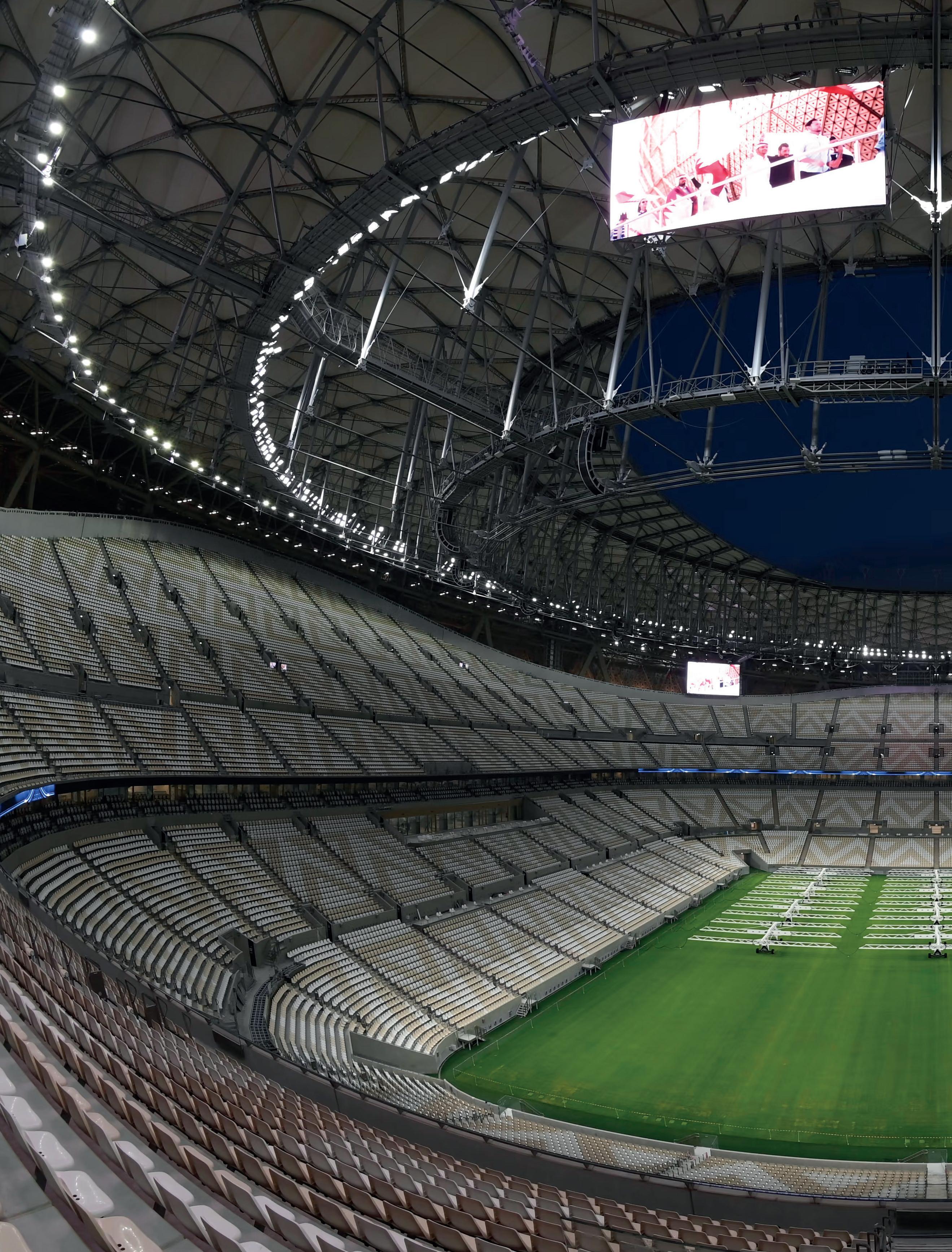
Lusail is one of the few stadiums that will not be down-scaled or repurposed after the tournament.
The design of the stadium balances the need for sunlight to grow the grass with a need to provide shade for spectators



Capacity: 40,000

Architects: Ibrahim M. Jaidah Games: Six Group games and two knock-out games
The design of the stadium represents the gahfiya – a traditional woven cap worn by men and boys across the Middle East. In legacy mode, the capacity of the venue will be reduced to 20,000 and it will be used for football and other sports. It will also house a number of commercial operations, from a sports clinic to a boutique hotel. The precinct surrounding the stadium will become a community hub with facilities for multiple sports.


Capacity: 45,416
Architects: Dar Al-Handasah Games: Six Group games and two knock-out games

First built in 1976, Khalifa International Stadium has previously hosted the Asian Games, Arabian Gulf Cup and AFC Asian Cup. In 2019, it hosted the IAAF World Athletics Championships.
The stadium lies in the heart of Aspire Zone – Qatar’s centre of sporting excellence which was the foundation of the 2006 Asian Games. For the World Cup, the stadium received a major facelift and upgrade –including an entirely new tier of seating, which has increased capacity by 10,450.

The stadium has a unique design


Capacity: 60,000


Architects: Dar Al-Handasah
Games: Six group games (including opening match) and three knock-out games
The stadium takes its name from ‘bayt al sha’ar’ – which were tents historically used by nomadic peoples in Qatar and the Gulf region. The design honours Qatar’s past and present, while keeping one eye on the future of the community. The stadium’s upper tier of seating will be disassembled following the World Cup and donated to developing countries in need of sports infrastructure.
The venue is situated in the Al Bayt Park, which boasts vast green spaces with play areas and exercise stations, along with tracks for running, cycling, horse riding and camel riding.
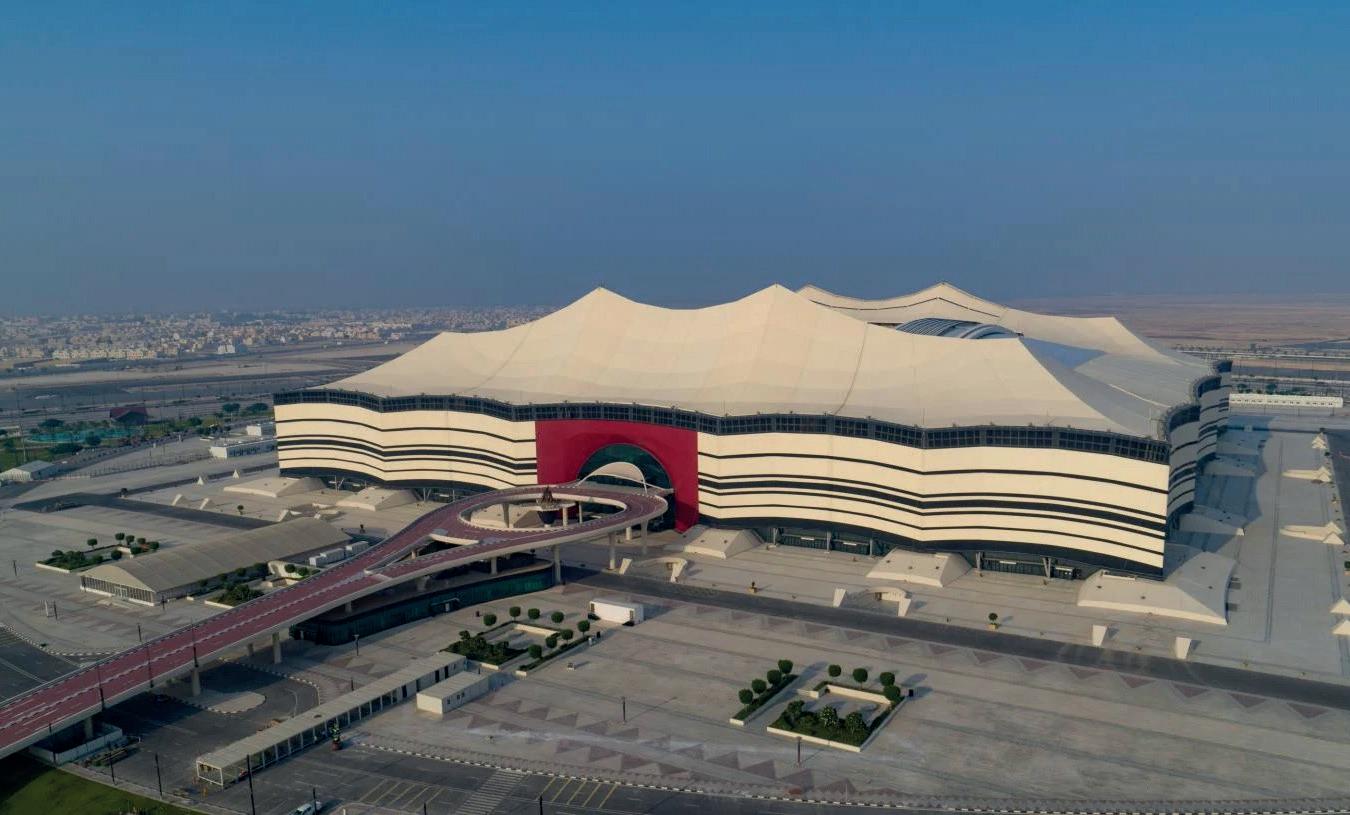
Capacity: 40,000
Architects: AECOM and Zaha Hadid Architects. Games: six group-stage matches, one Round-of-16 match

Located in the southern city of Al Wakrah, Al Janoub’s design is inspired by the sails of traditional dhow boats, in tribute to Al Wakrah’s seafaring past. An innovative cooling system and retractable roof mean the stadium will be used all year round.
After the tournament, Al Janoub’s capacity will be reduced, with seats donated to other sporting projects around the world. The surrounding Al Janoub Park features cycling and running tracks, children’s play areas and other green spaces. Eventually, there will be a marketplace and community facilities, including a mosque and school.
Capacity: 44,740

Architects: Pattern Design Games: Six group games and one knock-out game
The venue is located in Umm Al Afaei – one of Qatar’s most historic cities. In addition to the artificial cooled pitch, one of the stadium’s most striking features is a glowing facade, comprised of patterns that are meant to characterise different aspects of the country – international trade, the importance of family, the beauty of the desert, and the native flora and fauna.
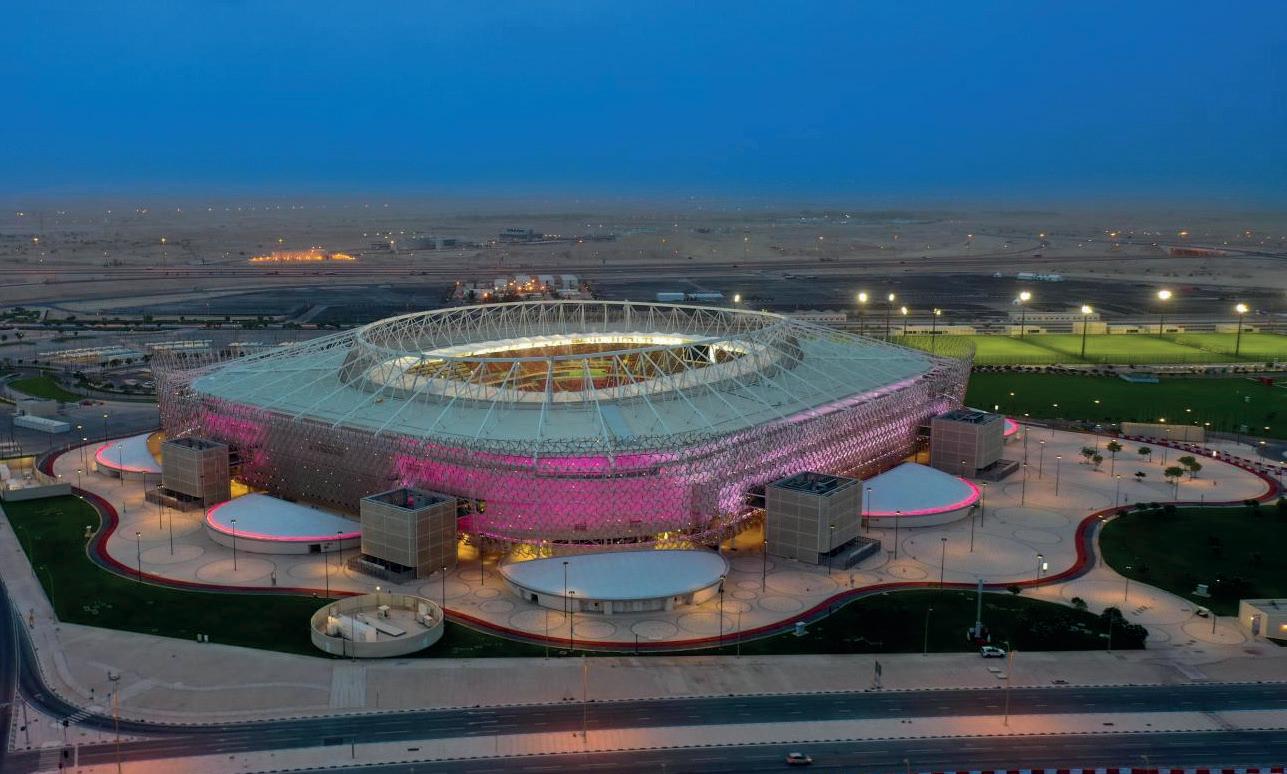
More than 80% of the construction material came from the original stadium that previously occupied the site, while existing trees were also carefully retained. As with the Al Bayt stadium, the modular upper tier will be removed after the tournament, with the seats being re-purposed into sporting facilities in Qatar and overseas.


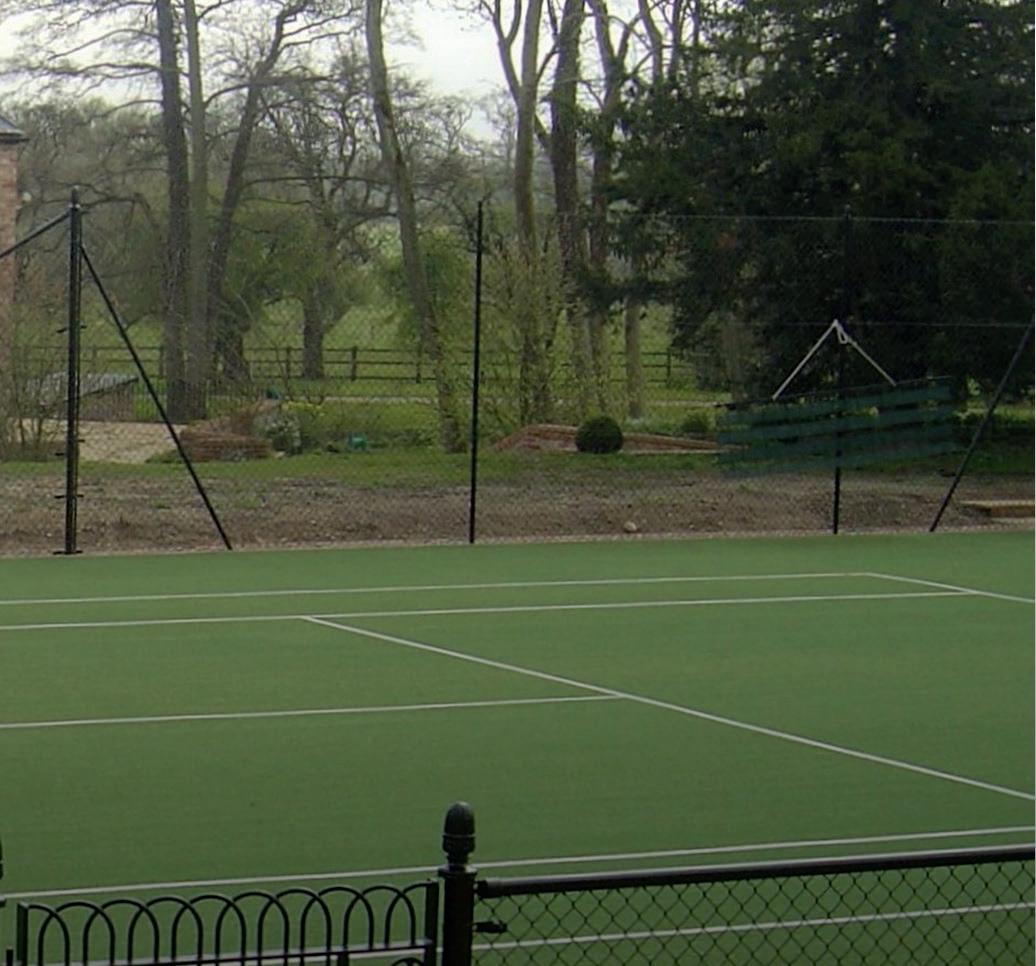


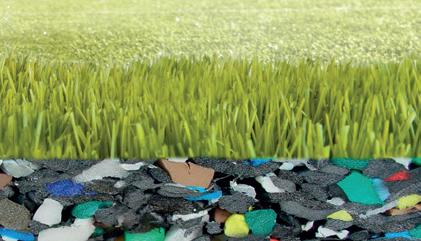

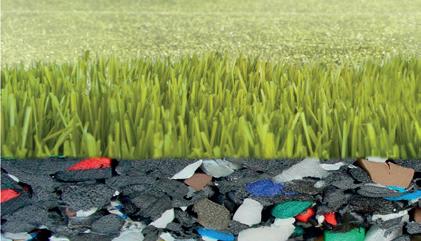


The SAPCA Conference and Exhibition took place in Glasgow on 12 October. Held at Hampden Park, Scotland’s national stadium, the one-day event featured a series of educational seminars covering a wide range of topics
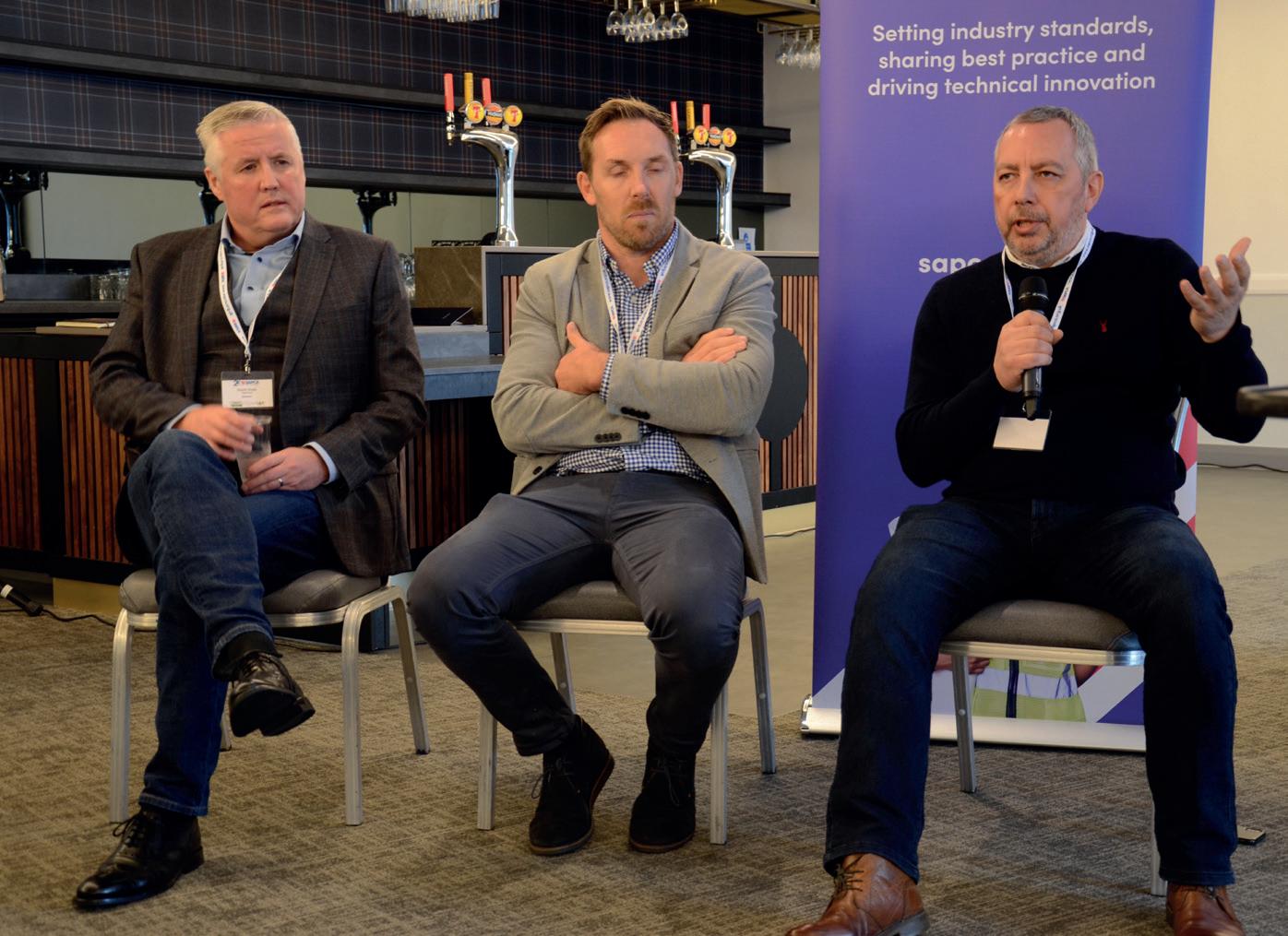
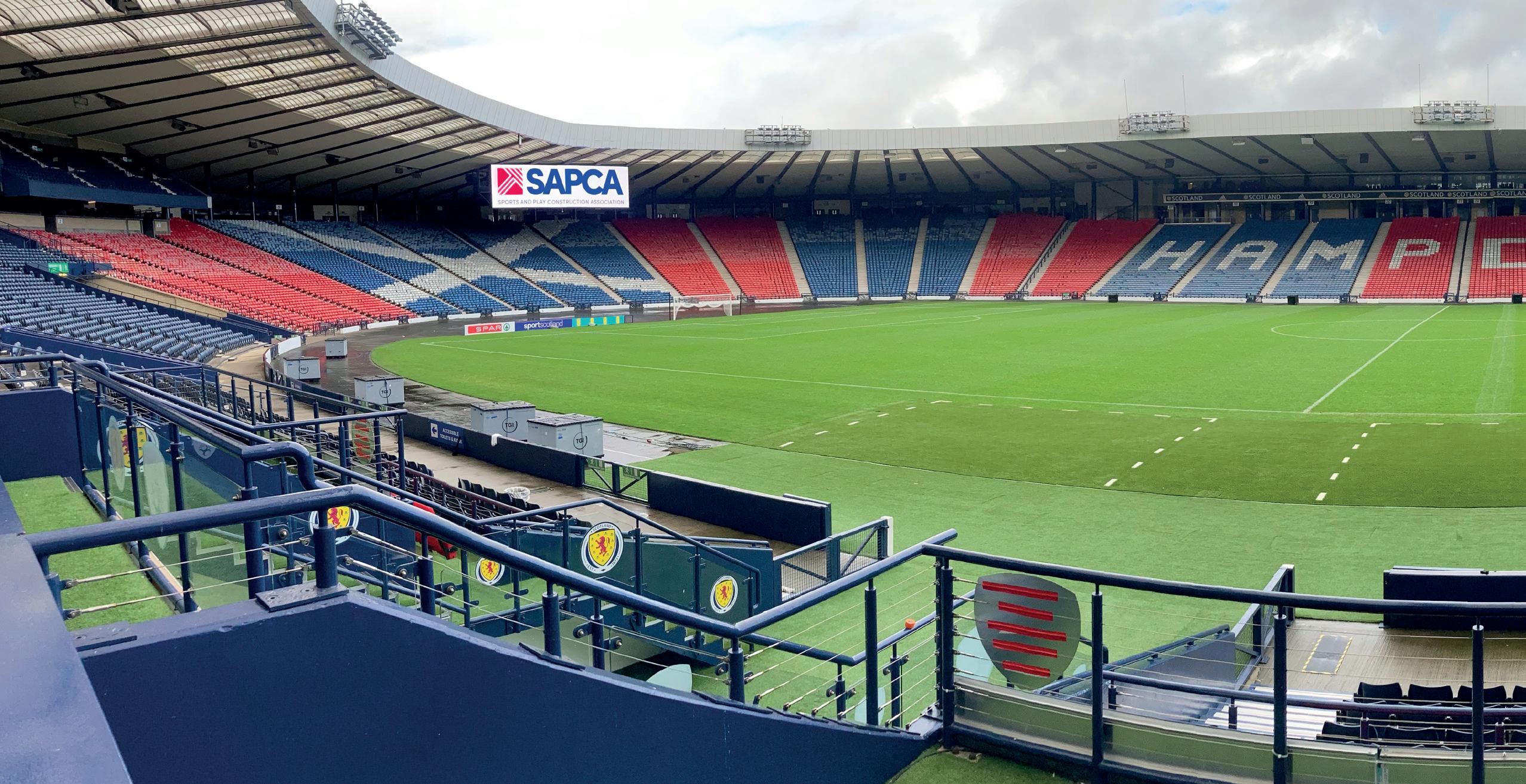
The day began with a recorded message from Scottish Minister for Sport, Maree Todd. She highlighted the importance of SAPCA members in designing and building the facilities needed to create an active, healthy nation.
“We know that too many people face barriers to participation,” she said. “This is a challenge we are determined to address and where our primary focus lies.
“The opportunities for communities to use high-quality, inclusive facilities plays an important part in achieving this. Our investment must ensure that we address any inequalities that exist and break down the barriers that people experience and that prevent them from being active.”
Todd also commended SAPCA for its approach to place sustainability at the heart of its strategy and operations. “The Scottish government is committed to the country becoming a net-zero nation by 2045,” Todd said. “With the funding the
The day featured a number of panel sessions with SAPCA members as speakers

government is providing for current and future facilities, there is a responsibility on the sports sector, in terms of sustainability and the transitioning to net-zero.
“I’m delighted to see that on the programme for the SAPCA Conference there are sessions around sustainability across sports facilities. That is increasingly important and it is going to remain so.”

Cammy Watt from the Scottish FA introduced delegates to the association's funding plans – including the association’s Grassroots Pitch & Facilities Fund, which was launched in December 2021. The funding focuses on the replacement and enhancement of 3G football surfaces, but is also available for natural grass projects.

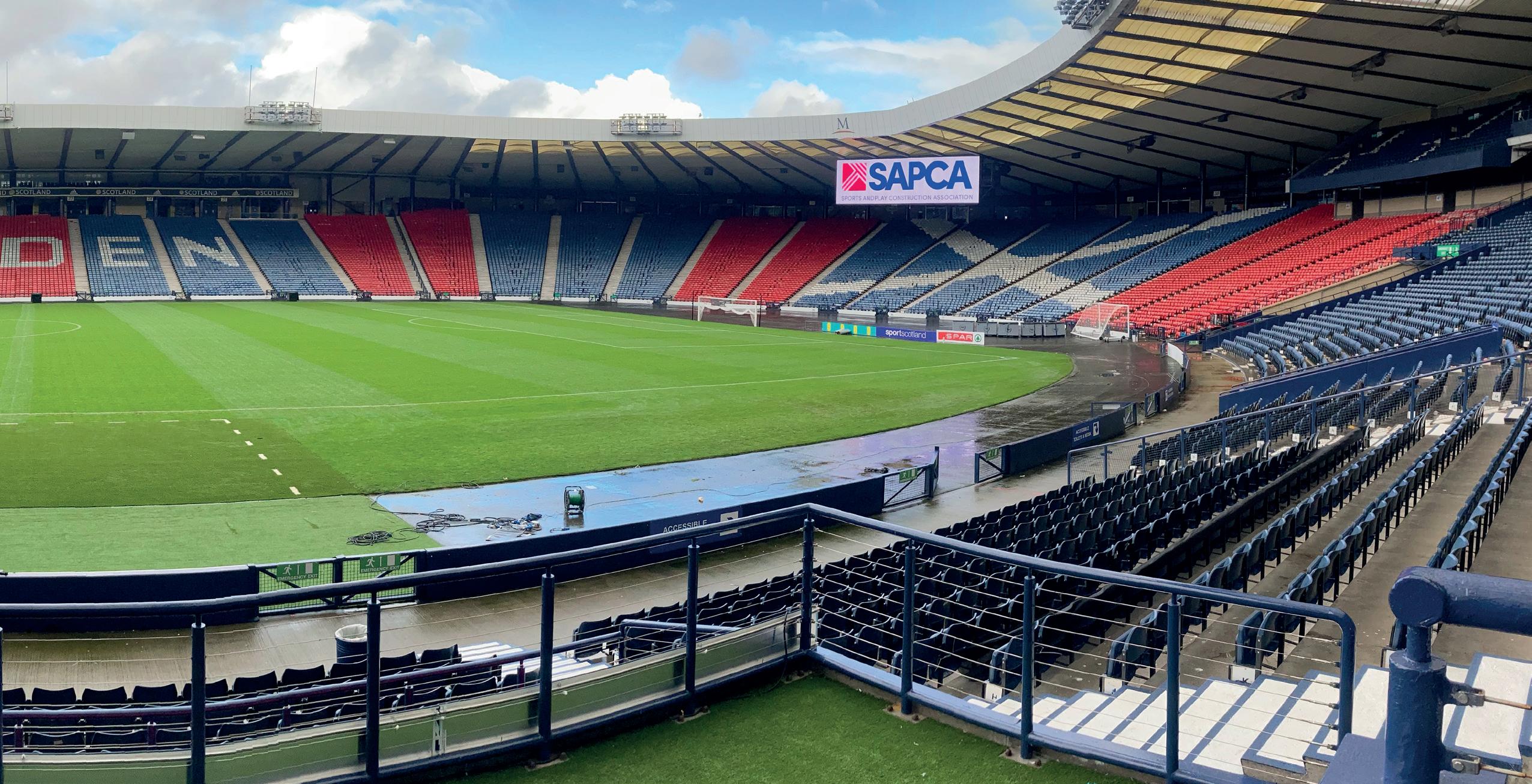

Each pitch and facility project receiving investment from the Grassroots Pitch & Facilities Fund will have to show it can achieve three key goals: to protect and improve participation levels; to offer football development opportunities in a safe and attractive venue; and to actively and demonstrably promote the benefits of adopting football as a positive lifestyle choice.
“During the first phase of the funding programme, in 2021-22, we received 34 applications with a total value of £8.56mm,” Watt said. “Of those, we were able to support
I’m delighted to see that the SAPCA conference features a number of sessions on the topic of sustainability and sports facilitiesScotland’s national stadium, Hampden Park, provided the backdrop for the event Cammy Watt from the Scottish FA provided an update on funding plans
In total, more than 120 people attended the seminars, while the exhibition floor offered SAPCA member companies an opportunity to showcase their products and services to the industry

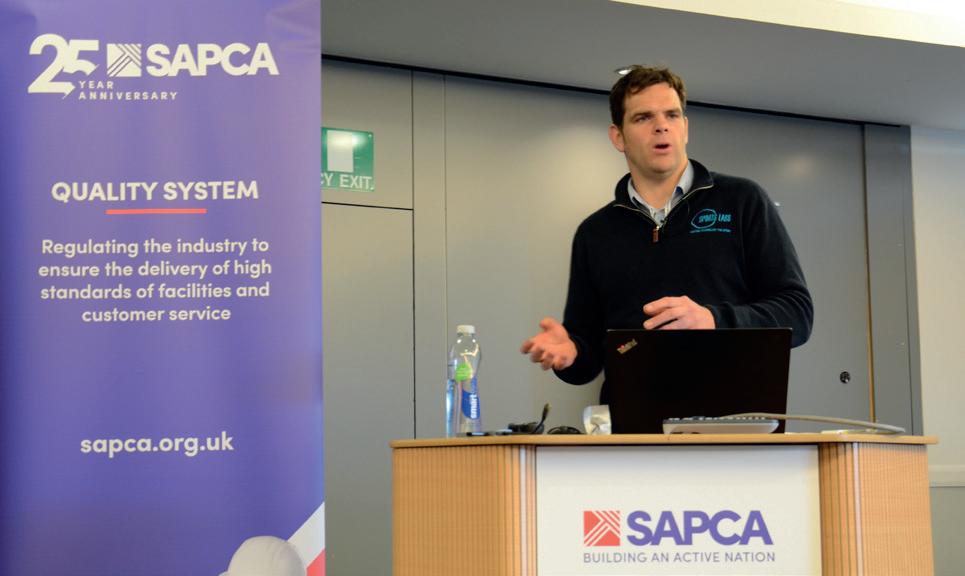


17 projects, so exactly half.” Watt added that the exact financial details for the value of phase two, which will run from 2022 to 2023, are yet to be confirmed – but confirmed that the programme will run at least until 2025.

As well as being highlighted by the sports minister, the topic of sustainability also featured heavily in a session presented by Graham Finnie, sportscotland’s Lead Manager in the Sports Facilities Team. Finnie pointed out how the industry will be both directly and indirectly impacted by climate change.


Finnie said one of the direct impacts on sports pitches and facilities – as well as famous venues – is the increased threat from flooding. He highlighted how the famous Old Course at St Andrews golf club has already fallen victim of flooding and could eventually become unplayable. Finnie also outlined how a number of both natural and 3G pitches, located in coastal areas around Scotland, had been severely affected and could be lost to flooding.
The indirect impact for the sector, according to Finnie, will come from the way businesses, local authorities and individuals will need to invest more resources into tackling climate change and to secure essential services – which
could divert finances away from sport at all levels (from facility development projects at grassroots level to sponsorships at the elite end of sport).
He called on everyone in the sector to “do their bit” and to include sustainable planning and practices in all operations.
“As the national agency for sport in Scotland, sportscotland has a responsibility to work with and provide support to the sport sector,” Finnie said.
“While we do have an important role to play in this area, it is also important that we all take responsibility for making the cultural and behavioural changes that are needed to prevent any further damage to our environment.”
Other sessions during the day included a talk entitled “10 Steps to a Successful Project”, presented by David Dickinson from Sports Labs. There was also a panel discussion on artificial turf featuring David Hook (Tiger Turf), Sean Ramsay (Sports Labs) and Malcolm Clapperton (Mac Consulting).
Blane Dodds and Kirsty Humphries from Tennis Scotland also provided delegates with an insight into the current state of tennis facilities in Scotland – and the impact of the facilities on the development of the game.
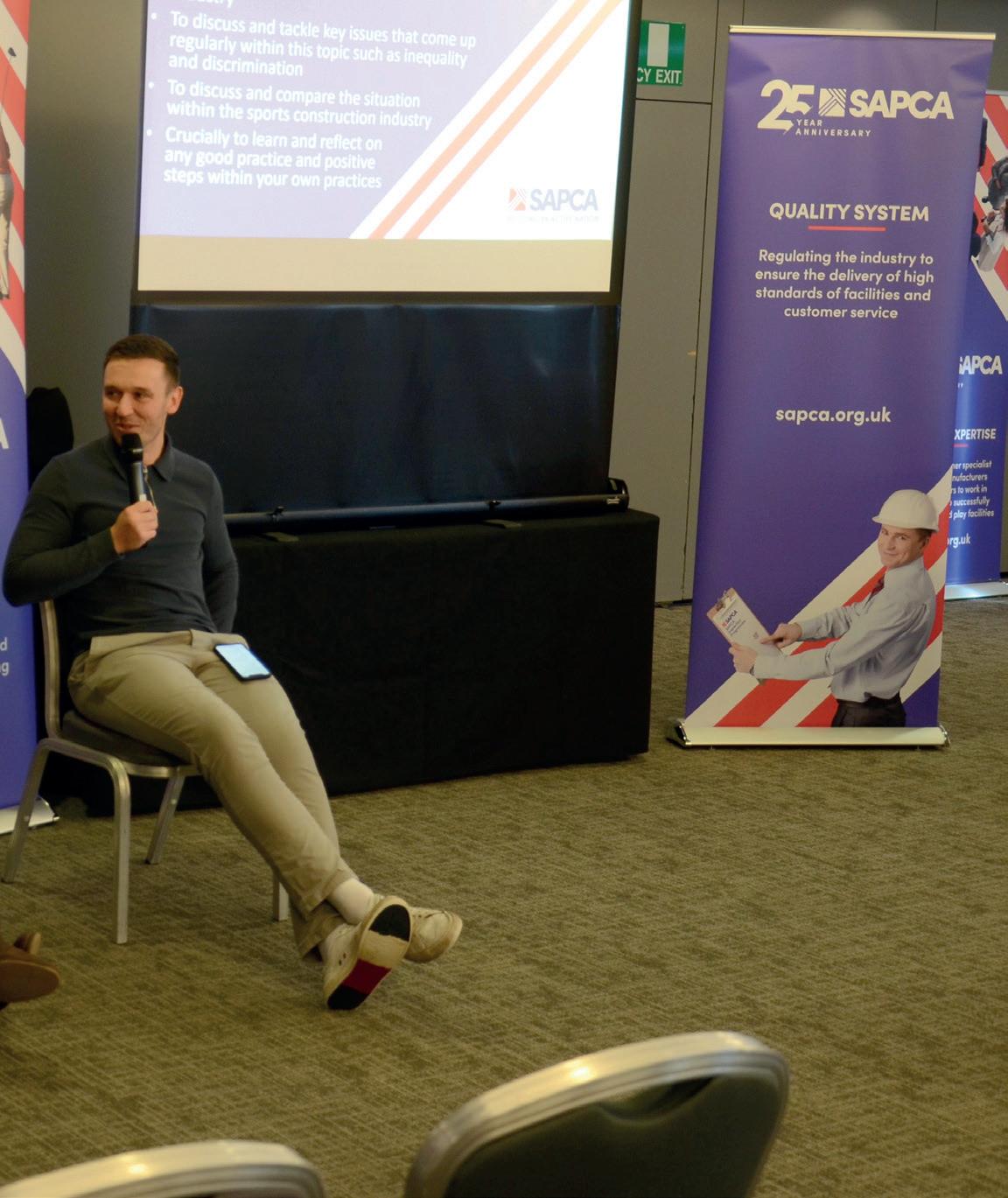
“We want to see more people playing across clubs and pay-asyou-go facilities,” Dodds said.
He added that Tennis Scotland’s facility strategy was based on three key terms –protect, enhance and progress. “We want to see tennis becoming an all-year round sport in our communities,” he said.
The next SAPCA event will be the association’s Technical Meeting, which is open to anyone working in the sports sector. Taking place on 8 December, the one-day event will offer a a programme of seminars and workshops on the most important technical topics of the day – from facility design to sustainability. l
For more information, visit: https://sapca.org. uk/events/sapca-technical-meeting-2022/

Bigwave Marketing’s mission is to make a difference and deliver growth . We’ve been doing that by helping thousands of businesses across the UK with their marketing, sharing our knowledge and expertise to help their business grow.





Targeting your marketing with a diverse range of methods is important to reach all potential customers. Statistics show that the revenue per £1 spent is highest when 40-50% of the marketing budget is spent online*. This means 50-60% should be spent offline. We can help you reach your targets with impactful and innovative printed solutions that deliver results and help you hit your targets. Support the cause, request a quote











Following a number of delays and disruptions, mainly related to COVID-19, the Ravelin Sports Centre has finally opened its doors. Owned and operated by the University of Portsmouth, the £57m centre took more than three years to build and is heralded as one of the UK’s most sustainable sports venues.
After first revealing plans for the Ravelin centre in 2018, the University of Portsmouth appointed Wates Construction as the main contractor for Ravelin in 2019. The centre was originally slated for an early 2021 opening, but the pandemic put an end to those plans, causing more than a year-long delay to proceedings.
From the start, plans for the building – designed by FaulknerBrowns Architects –set new standards for sustainability and energy efficiency in indoor leisure
facilities. As a result, the centre features a number of innovative solutions. These include the installation of roof solar panels and internal heat recovery systems to create renewable energy, which is then used in the running of the building.
The pool water will also be used for toilet flushing, while wastewater drainage is cleverly managed and used to create an urban orchard outside the building. The swimming pool will be naturally lit, with natural ventilation used where possible to minimise energy usage. The centre also features a biodiverse grassed roof with beehives.
As a result of the investment in environmentally friendly solutions, Ravelin has become the first sport and leisure centre in the UK with a swimming pool to be awarded with a BREEAM Outstanding mark.


As well as the impressive main building, the project involved improvements to the adjacent Ravelin Park. These include a new entrance plaza between the sports
The venue is owned and operated by the University of Portsmouth
building and the university library, new pedestrian routes, increasing the number of trees in the park, the urban orchard and the opening up of views to the historic buildings on Museum Road.
The project represents the first major phase of the University’s estate development masterplan, which aims to reshape its city centre campus to enhance the student experience and strengthen connections with the rest of the city.
Facilities for all The facility opened to students and staff in September, followed by an official opening to the general public in October. Located on the corner of Ravelin Park at an important juncture between the University campus and the city centre, the facility presents an opportunity to create a welcoming gateway into the university quarter and establish a public facing presence in the city centre.
The site strategy has been developed to grasp this opportunity while responding to the park and surrounding context.




Facilities inside the 11,009sq m centre include a health club with a 175 station gym kitted with Technogym equipment, multi-purpose fitness class studios and an eight-court sports hall. The studios will offer gym users a selection of the



The swimming pool will be naturally lit, with natural ventilation used where possible to minimise energy usage
popular Les Mills group classes.
There is also an eight-lane 25m swimming pool, squash courts and a climbing wall. The design of the pool area means that swimmers will have views from the pool of the natural green spaces outside, creating the feeling of open-air swimming in the park.

One of Ravelin’s quirkiest offerings is a £100,000 ski simulator, allowing users to practice their skiing and snowboarding skills all-year round.
Professor Graham Galbraith CBE, Portsmouth University’s vice-chancellor, says: “This is a landmark building for the University and for the City of Portsmouth and will provide an amazing experience for everyone who uses it.
“Ravelin is a truly exceptional sports centre with first class high quality facilities, designed and constructed to the highest specifications of sustainability. It’s tremendously exciting that we can now look forward to our students and community enjoying one of the best sports facilities in the UK.” ●

Architect: FaulknerBrowns
Facilities:
● Eight-lane 25m swimming pool
● 175 station fitness suite
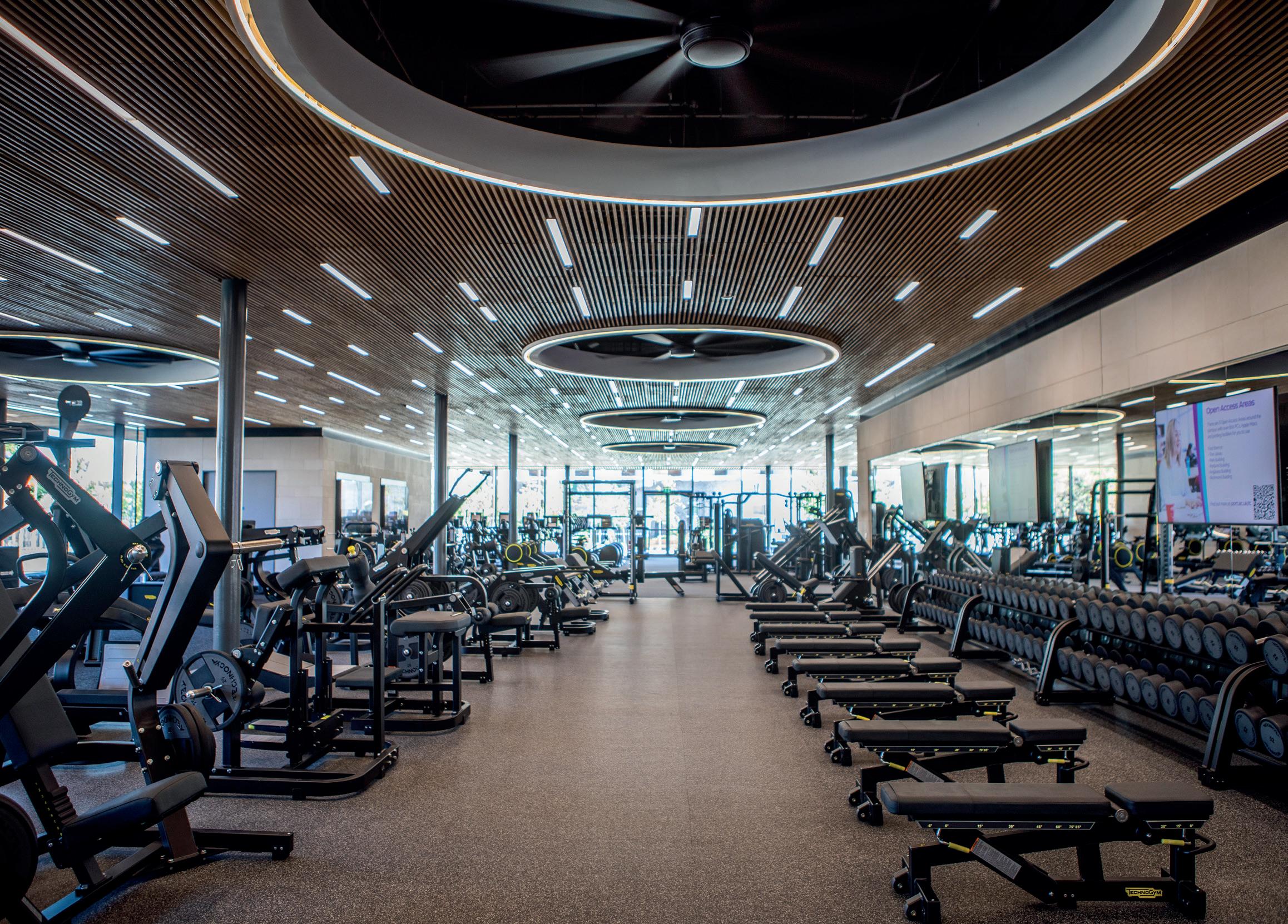
● Multi-purpose studios delivering Les Mills classes
● Ski simulator
● Climbing wall and bouldering


● Eight-court sports hall
● Squash courts
● Teaching spaces
● Café
● Community orchard and wildflower amphitheatre
● Underground car park
The centre has a large climbing and bouldering wall














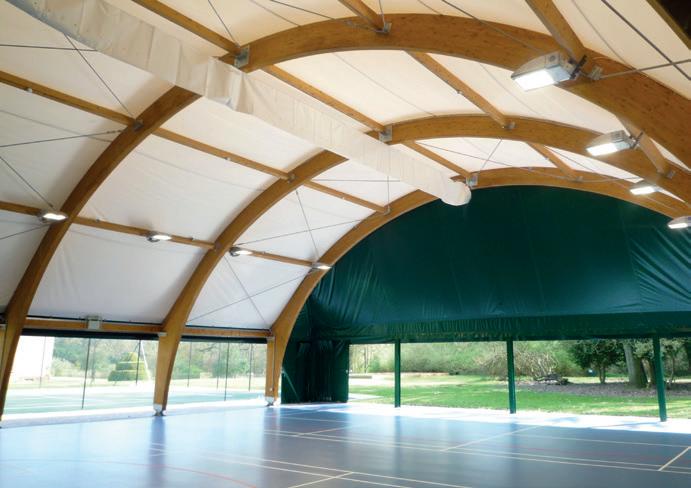























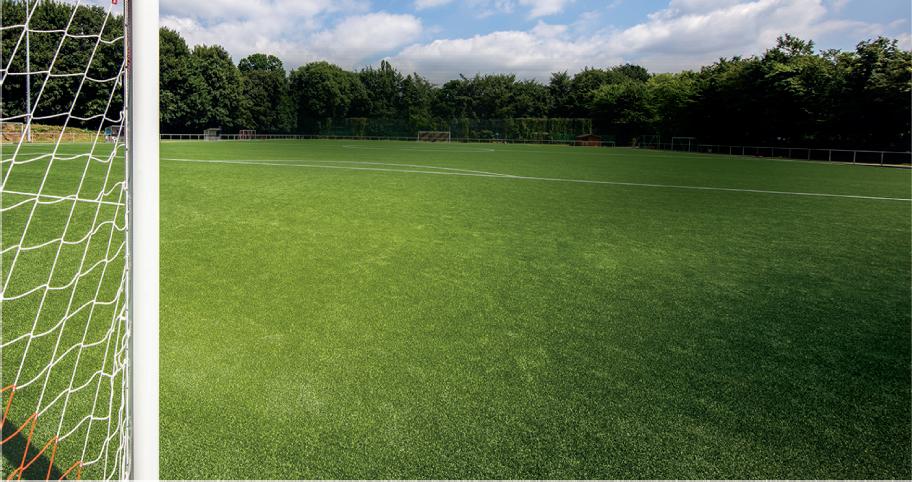



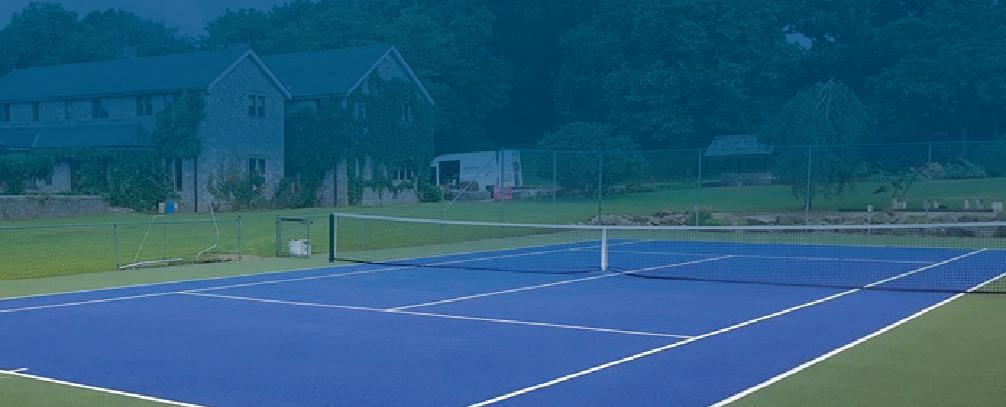



















It is a sports technology testing laboratory operating globally. Our services are specifically tailored to meet the needs of clients seeking to construct new synthetic sports facilities and associated infrastructure. We specialise in all aspects of the design, procurement, delivery, and assessment of sports surfaces. This also includes sports surface product testing, goal line technology and ball testing to world governing body standards.
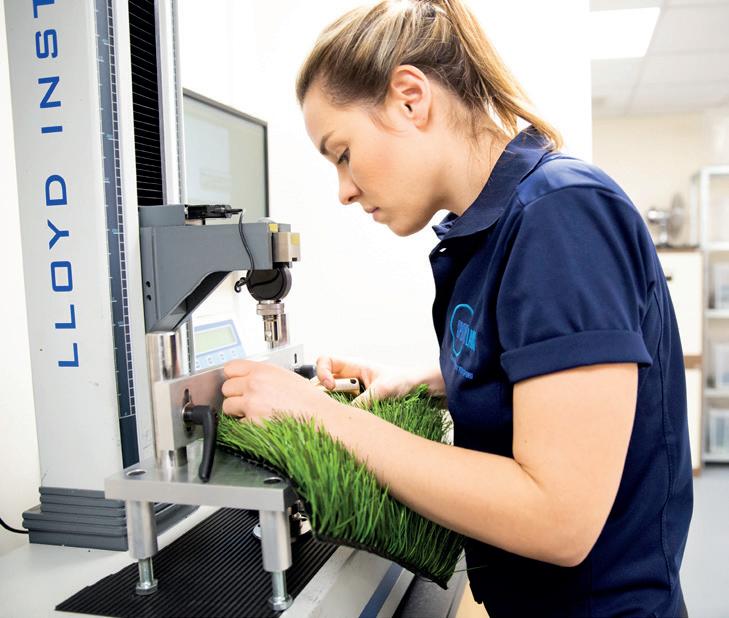
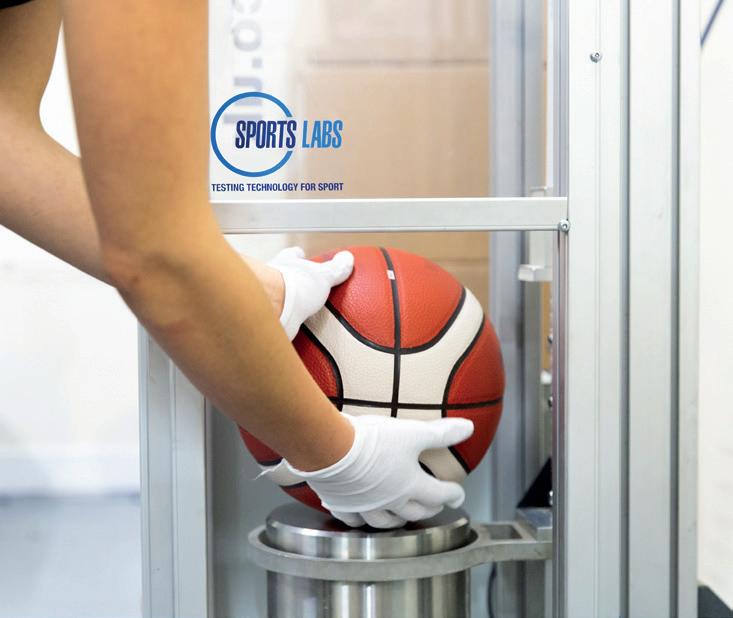

I joined Sports Labs in March 2019. My role at our Livingston HQ is one of laboratory co-ordinator, which involves the day-to-day organisation of the laboratory. This consists of organising staff, the responsibility for safety and quality control and requires a high level of self-discipline to deal with enquiries from clients through to the accurate reporting of results. Overall coordination, communication and teamwork is very important!






I’m originally from South Africa. Prior to moving to Scotland I worked as project manager for UJSportslabs – a joint venture between Sports Labs and the University of Johannesburg – from 2009 until 2019. My role entailed the overall management of the business and laboratory in Johannesburg.
To date, one of the highlights of my career was being involved in the delivery of 27 full size artificial football pitches installed as part of the Legacy programme for the 2010 FIFA World Cup.
After 10 years at UJSportslabs an opportunity arose for me to work for Sports Labs in Scotland with the focus shifting from field testing to product testing and I jumped at the chance.

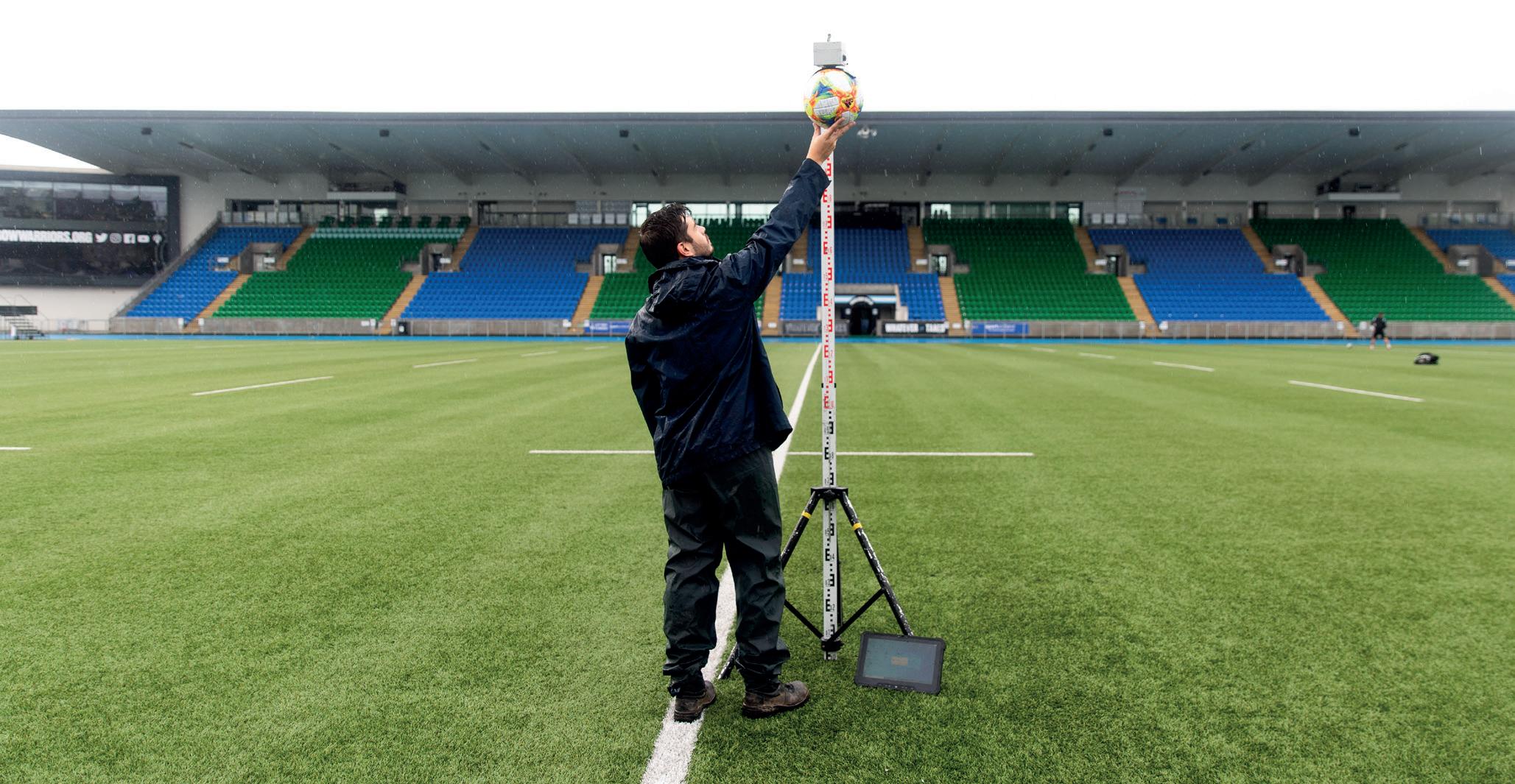
How did you first end up working in the sports industry?
I have always been passionate about sport and have actively participated in sports since a young age through various forms. I furthered this interest through my studies studying sports management at University and obtained my Master’s degree in Sport Management in 2012.
Is working in sports what you expected?

No, but I would say that is more to do with the fact that I landed up working in part of the sports industry that I did not know even existed when I was growing up! This is the magic of it all though, as it has afforded me the opportunity of travelling across not only South Africa but Africa as well and has hopefully made some form of contribution however small to the people living in these communities through sport.

I’d say more important is the awareness of such initiatives and ensuring it filters through to all levels. The more aware we are of a network like Women in SAPCA, the more actively involved we can be. This in turn will help achieve the overall aim of Women in SAPCA, which includes improving participation and representation, as well as professional development, while providing a much-needed platform for women specifically in the sports and play construction sector.
What would your message be to women who are considering a career in sport?
Go for it! We are fortunate that with the commercialisation of sport there are such diverse career opportunities in all sectors of the sport industry that anyone who has a passion for sport can have a career in it. ●
The more aware we are of a network like Women in SAPCA, the more actively involved we can be















































